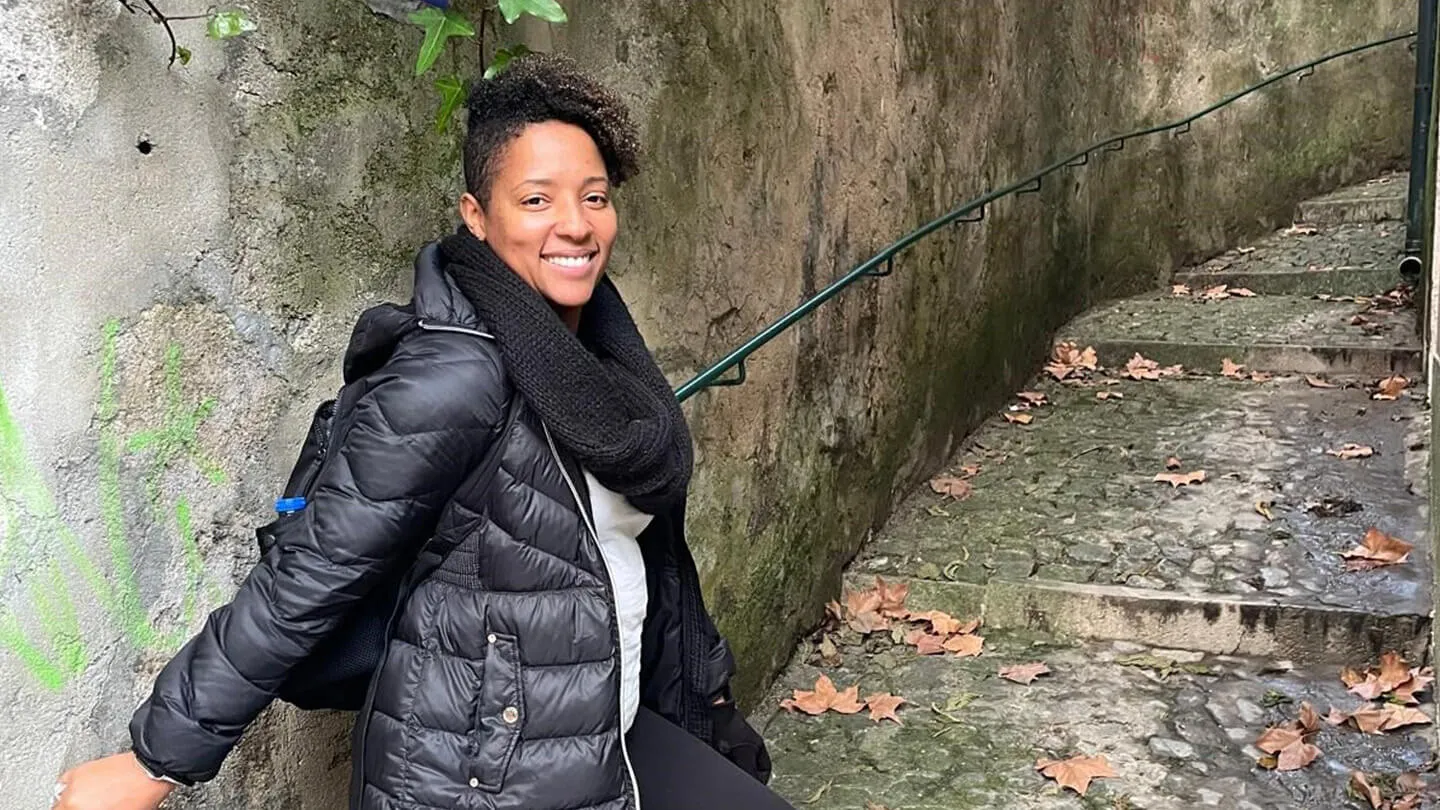The alumni of UVM’s College of Arts and Sciences (CAS) are a hugely diverse group to be sure, but, as you’ll see below, there’s a common thread running through many of their stories: how a broad-based, liberal arts education provided a potent recipe for both professional success and personal fulfillment. Without further ado, allow us to introduce you to 50 alums who have used the skills they learned while in CAS to build rich, rewarding careers doing things they’re passionate about—all while traveling paths as unique as their college experiences.
Jump to: A | B | C | D | E | F | G | H | I | J | K | L | M | N | O | P | Q | R | S | T | U | V | W | X | Y | Z
A
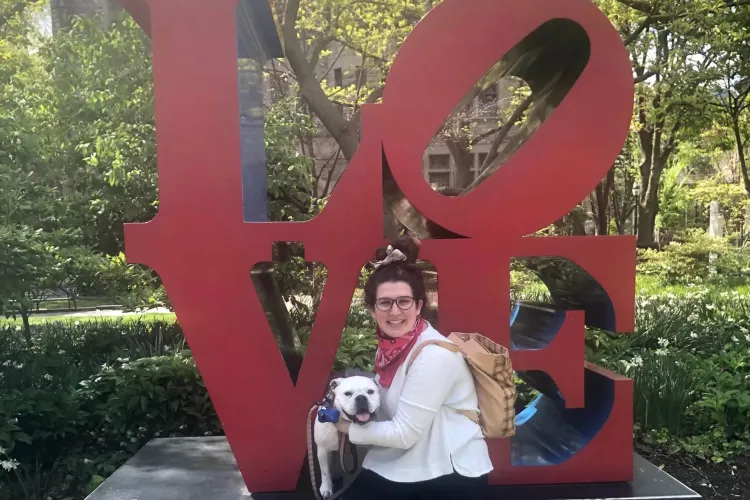
Eliza Alford ’13
Majors: History and Political Science
Lives in: Philadelphia, PA
Current position: Policy Director for Philadelphia City Council Majority Leader Katherine Gilmore Richardson
What work looks like: “I lead all policy and legislative work, including drafting legislation, clerking the Committees on Law and Government and Finance, reviewing all legislation, and prepping the Majority Leader for voting.”
What she loves about it: “My job is the perfect blend of politics and policy. I get to lead the development and analysis of important legislation and work collaboratively with my boss to strategize on how to achieve our goals, which stakeholders we need at the table, how to negotiate changes to our ideas, and how external political factors influence our work. It requires creativity and strategy, and, most importantly, it’s fun and allows me to serve the public every day.”
What she gained from a liberal arts education: “It gave me the skills and confidence I needed to find success in a difficult industry without a clear career path. I learned critical thinking, writing and analysis, and problem solving, and I was provided with the opportunity to learn holistically and push myself to study subjects that did not come naturally to me. In all my professional roles, I have been given a broad set of responsibilities and the opportunity to try new things. My liberal arts education gave me the confidence to meet all those tasks head-on and not worry about being a subject matter expert. It’s the foundation of my professional identity.”
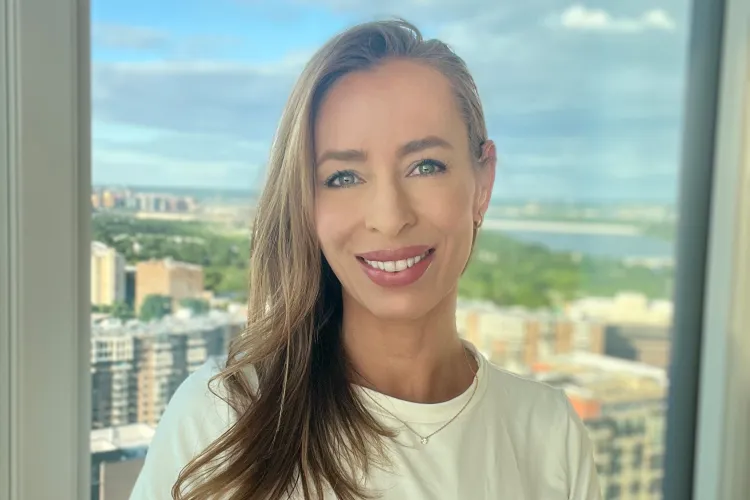
Alex Auman '09
Lives in: Ciudad Juárez, Mexico
Majors: History and Political Science
Current position: Foreign Service Officer in the U.S. Foreign Service
What work looks like: “U.S. Diplomats work in all corners of the world to protect Americans and American interests overseas. This includes promoting peace, advancing economic development, strengthening international relations, and providing help during crises and disasters.”
What she loves about it: “Every few years I get to live and work in a completely different part of the world while at the same time serving my country. So far, I’ve worked in Hungary, Kyrgyzstan, Morocco, and Iraq—and now, Mexico!”
What she gained from a liberal arts education: “Most importantly, I gained critical thinking skills! I would not be an American diplomat today if I did not have the critical thinking skills I developed during my time at UVM. Receiving knowledge is an important aspect of higher education, but I believe critical thinking is the most important skill a student can learn. Persuasive writing comes in second. The future holds untold opportunities for each of us, and we don’t know what we don’t know. A well-rounded education provides the skills and experience needed to adapt to new situations, further personal and professional growth, and ensure better judgment.”
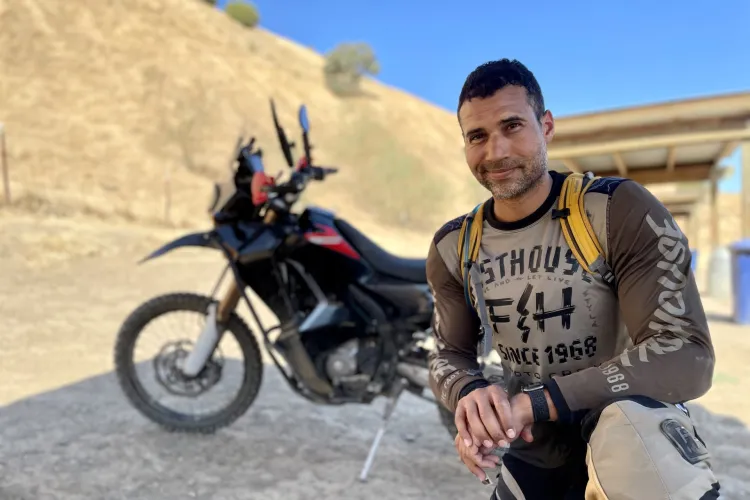
John Austin '07
Lives in: Oakland, CA
Major: Anthropology
Current position: Learning and Development Program Manager for Airbnb
What work looks like: “My job entails working with leaders to figure out how to create learning content that helps our internal teams grow and collaborate better.”
What he loves about it: “Solving problems with my colleagues—nothing is off the table and the more you understand what makes people tick the more creative you can be with what you build to help them grow.”
What he gained from a liberal arts education: “Critical thinking and adaptability. My first class at UVM, the professor wore a hat with a ponytail and at the very end took it off to shift our perspective from hippy professor to clean-cut academic. It was a micro-lesson on perspective and prejudice that I continue to use in my work. The critical thinking and adaptability I learned have also helped me. Nothing within the business world is completely ‘rule-based,’ meaning what you anticipated will always change. Both of those skills have let me quickly understand a new environment and make an impact. It’s been crucial to my success. Many of my friends have gone into careers that have clear pathways and steps, but mine has had lots of twists and turns. It’s exciting to know that I could be working on anything tomorrow! Liberal arts gave me the flexibility to think that way and know there’s not one single answer to how to live and work.”
B

Lydia Bates '14
Lives in: Atlanta, GA
Major/minors: Political Science major, History and Studio Art double-minor
Current position: Program Manager for Partnerships at the Southern Poverty Law Center (SPLC)
What work looks like: “I am part of the SPLC department that researches and monitors far-right extremism in the United States. I work with our external partner organizations to develop resources that help young people understand extremist manipulation and build their resilience to it.”
What she loves about it: “I enjoy discussing and working towards intersectional and collaborative solutions to complex issues, such as rapidly changing technological and social landscapes and increasing political polarization, that are impacting young people and their communities across the United States. Also, I love our union because it supports transparency and accountability for the whole organization and builds camaraderie and solidarity amongst the staff. Overall, it makes SPLC a better place to work.”
What she gained from a liberal arts education: “In all the positions I’ve held in my 7-plus years at SPLC and at each of my prior jobs, writing has been a massive part of my work. I’m regularly required to take a large amount of research, primary and secondary sources, and other materials, and distill them all down into one coherent piece of writing that is accessible for a broad audience. I think the countless papers I wrote in my four years at UVM gave me a very strong foundation to build my professional writing career on. Overall, the interdisciplinary approach of my liberal arts education has proved very valuable in my career. It has helped me to think critically, understand and appreciate differing perspectives, and work towards responses to complex problems that are adaptable and responsive to a diversity of needs.”
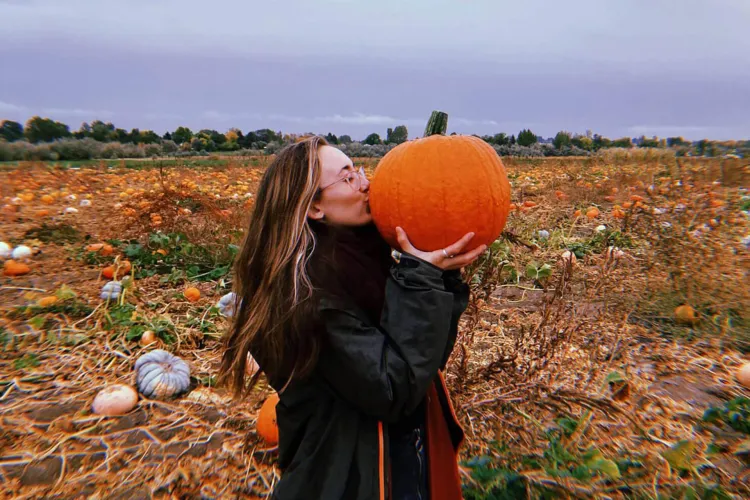
Natalie Battistone ’13
Major/minors: Classical Civilizations major, Acting and Scenic Design double-minor
Lives in: Brooklyn, NY
Current position: Actor (KrymovLab NYC/Riot Act LA)
What work looks like: “My job entails performing, developing new work, rehearsing, and constant auditioning. Staying sharp requires daily practice: reading and analyzing scripts, memorization, creativity, and an emphasis on overall wellbeing. I am also a coach and a director, which affords me opportunities to approach work from an outside angle.”
What she loves about it: “I love that my job is always different. There are days when I’m working on something entirely new and others when I’m returning to a character I’ve known for a long time but am now experiencing through the lens of the current moment. I enjoy perpetually stepping into the unknown because it demands absolute presence.”
What she gained from a liberal arts education: “I am non-linear. Critical thinking, academic writing, and discipline are the most important skills I cultivated through my liberal arts education. Organizing thought into a cohesive argument underpinned by a meticulous structure was monumental for me. My liberal arts education has been an invaluable training ground, as working in creative spaces requires a great deal of flexibility, adaptability, and risk-taking, but also vision. Taking classes in many disciplines with an emphasis on research in seminar settings primed me to celebrate collaboration and helped me develop a facility for synthesizing disparate information. Wherever I am working, I enjoy interdisciplinary projects and opportunities where I have to bridge seemingly unrelated concepts. Broad thinking is central to all aspects of my work.”
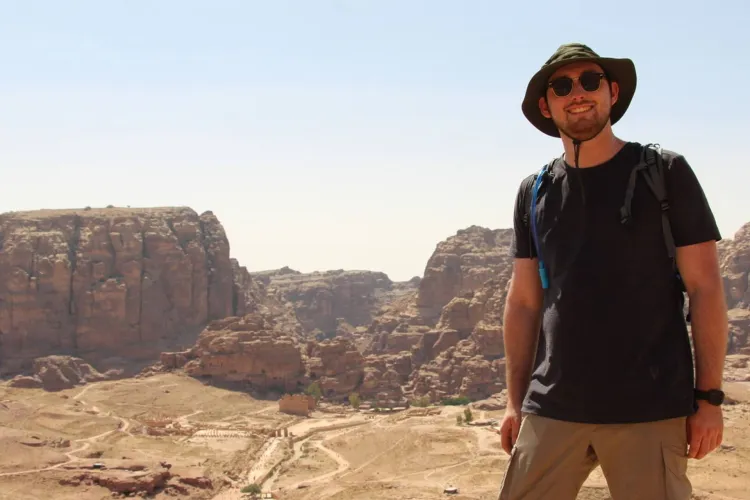
Harry Bertera ’21
Major/minor: Anthropology major (Global Health concentration), Biology minor
Lives in: Boston, MA
Current position: Senior Research Associate, Infectious Disease Immunology at Moderna Therapeutics
What work looks like: “My job entails completing research tasks to answer immunological questions related to mRNA vaccination programs. I mostly work with clinical trial samples to determine not only the immune response associated with vaccination but also further details about how the human body builds immunity from vaccinations.”
What he loves about it: “The thing I love the most about both my job and science in general is that I never stop learning. My job is consistently demanding that I be in the know and on top of my current tasks. This can range from learning new experiments to researching and reading publications in order to be well informed about the latest developments in a disease’s global state.”
What he gained from a liberal arts education: “The biggest takeaway for me is the breadth of knowledge I gained. Having the freedom to become an expert in global health while also pursuing scientific knowledge—and eventually a scientific career—is something I have been very grateful for. The biggest skill I have utilized is my ability to do my own research. Writing a research paper and learning how to properly approach answering a research question are both things that have helped me throughout my career."
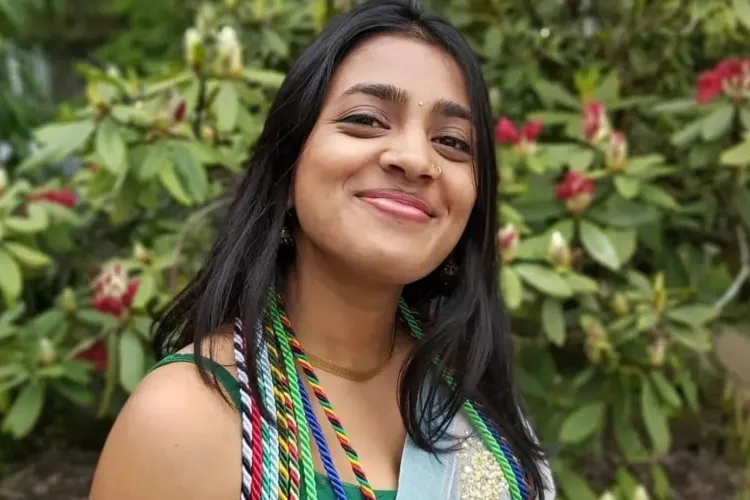
Akriti Bhargava ’16
Majors/minor: Political Science and Environmental Studies double-major, Economics minor
Lives in: Cambridge, MA
Current position: Legal & Regulatory Analyst, National Renewable Energy Laboratory
What work looks like: “I do legal and policy analysis for federal and state government clients, helping them achieve energy security and sustainability goals. I study how the current legal framework applies to energy infrastructure and analyze how it could be leveraged to promote renewable energy production and usage in the US and abroad.”
What she loves about it: “I love being a part of an incredibly smart team with wonderful diversities: fields of expertise, geography within the U.S., area of education, socio-economic and cultural backgrounds, etc. I work with other lawyers on my team, but also subject matter experts, data analysts, GIS experts, and other scientific researchers. It’s a great way to supplement my education on energy law with technical know-how about renewable energy technology.”
What she gained from a liberal arts education: “Critical thinking! It’s such an important skill to have – and one you can really only learn when you are around people who think, process information, and make conclusions differently from you. My time at UVM also taught me compassion. I often had different opinions and beliefs from some peers and friends but never felt those differences slide into disrespect. In today’s polarized times, I recognize that the ability to remain civil and respectful carries me very far in professional settings.”
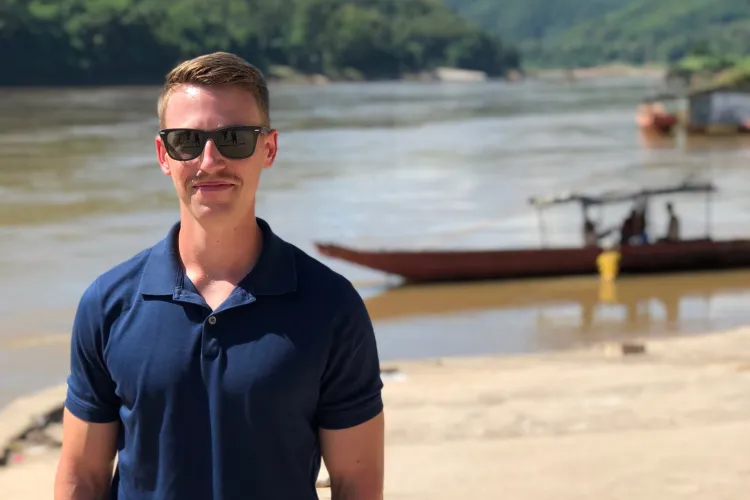
Adam Bottini '15
Lives in: Columbia, SC
Majors: Political Science and Philosophy
Current position: Senior Business Process Consultant for GlideFast
What work looks like: “I evaluate client software processes and workflows and then partner with them to implement improvements.”
What he loves about it: “The opportunity to work with folks across all industries and job types.”
What he gained from a liberal arts education: “My liberal arts education taught me many things, including analytics and analysis, critical thinking, research aptitude, interdisciplinary understanding, adaptability, and flexibility—all skills that have helped me get where I am today. Interdisciplinary understanding, in particular, provided the basis and foundation for my professional career, as being able to understand the industry and viewpoints of those around you is invaluable. It was immensely important to me to receive this kind of well-rounded education, as it provided a massive amount of exposure to various industries, perspectives, and lines of communication. Don’t be deterred from getting a degree in liberal arts—the skills you learn will carry you professionally into success.”
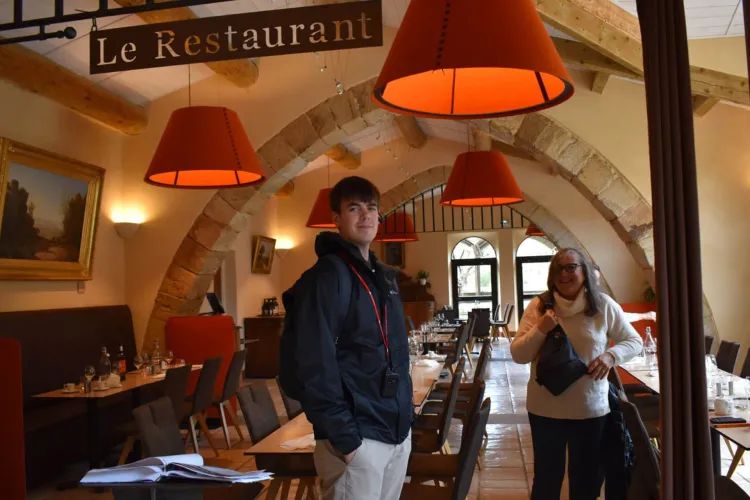
Andrew Bowen ’15
Majors: History and Political Science
Lives in: Arlington, VA
Current position: Executive Search Consultant for AGB Search
What work looks like: “My company helps colleges, universities, hospitals, museums, and other non-profits find and fill leadership positions. We travel to those locations around the US, meet the people and their communities, and then recruit and evaluate candidates who can support each organization’s current and future needs.”
What he loves about it: “I love meeting and interacting with a wide variety of talented people at all stages of their careers who are looking to make a positive difference in people's lives. There are so many people in education and other non-profits who truly want to help others, and that energy is infectious.”
What he gained from a liberal arts education: “It sounds cliché but reading and writing well are crucial skills in many lines of work, including mine. I am able to relate to people of all interests, backgrounds, and ambitions with empathy and kindness—traits we never fail to undervalue in our society. I work with hundreds of people in every industry imaginable, but I don't need to be an expert in each industry. My liberal arts education enables me to understand, appreciate, and take an interest in those professions, and to understand the systems in place that shape their functions. You don't have to be a niche industry expert to be successful! Also, I work with people who change careers every day, and it’s important to remember that your first job will not be your last.”
C
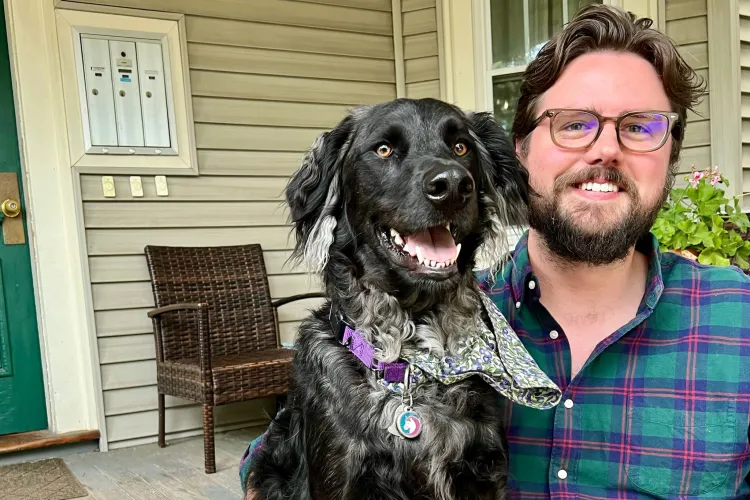
Thomas D. Campbell '13, J.D.
Lives in: Boston, MA
Major: Philosophy
Current position: Trial Attorney for the U.S. Department of Justice, Criminal Division, Fraud Section
What work looks like: “I investigate and prosecute white-collar crime, all the way from opening an investigation to presenting the case at trial. My cases focus on fraud and the unlawful distribution of controlled substances by doctors, medical device and pharmaceutical companies, hospitals, and other medical providers.”
What he loves about it: “My job is intellectually and personally rewarding. It provides a practical engagement and application of the kinds of ethical debates that I loved having in college, topics such as intentionality, accountability, and the consequences of one’s actions.”
What he gained from a liberal arts education: “At UVM, I learned how to read, understand, and summarize complex theories into succinct and compelling arguments tailored to a specific target audience. The argument might take the form of a written legal brief, an oral argument before a judge, or an opening or closing argument in front of a jury. The key is that I didn’t simply learn the theories of certain philosophers or the specific schools of thought throughout time, but instead learned a specific way of thinking and processing information. This has informed all my work, from working as an advocate at a nonprofit, to pursuing graduate school, to working for federal judges, to practicing law. I also learned to distill an argument down to its basic structure, which is immensely helpful when reading legal opinions or an opposing party’s rationale. I cannot overstate how much I value the liberal arts education I received in the philosophy department at UVM.”
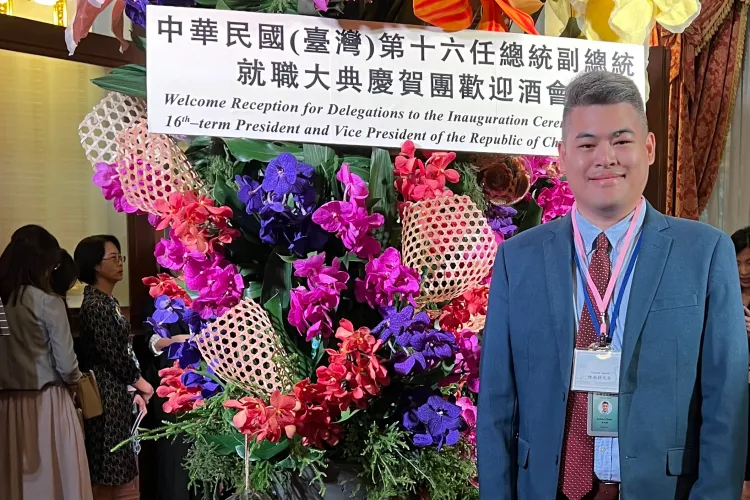
Kelvin Chen '11
Lives in: Taipei, Taiwan
Major: History
Current position: Journalist at the Taiwan News
What work looks like: “I cover major stories related to Taiwanese political, cultural, and military affairs. I also conduct exclusive, in-depth interviews with Taiwan academics, experts, politicians, diplomats, and others.”
What he loves about it: “I get to attend exciting events and major press conferences and meet key figures in Taipei’s diplomatic and political circles. In my nearly five years as a Taipei-based journalist, I have interviewed ambassadors and prime ministers from various nations, visiting U.S. delegations, and Taiwanese lawmakers and government officials, including the former Chief of the General Staff of Taiwan’s Armed Forces.”
What he gained from a liberal arts education: “Receiving a liberal arts education instilled in me critical thinking skills and honed my writing capabilities. It also significantly impacted my global view, exposing me to different histories, politics, and cultures of the world. I became even more curious about what was happening in other countries and eager to expand my knowledge of current global affairs. “Thanks to the skills I gained, I can efficiently grasp key concepts or facts from large amounts of information, which is imperative to being a successful journalist. The core skills I learned at UVM made the transition from academic to journalistic writing a smooth one.”
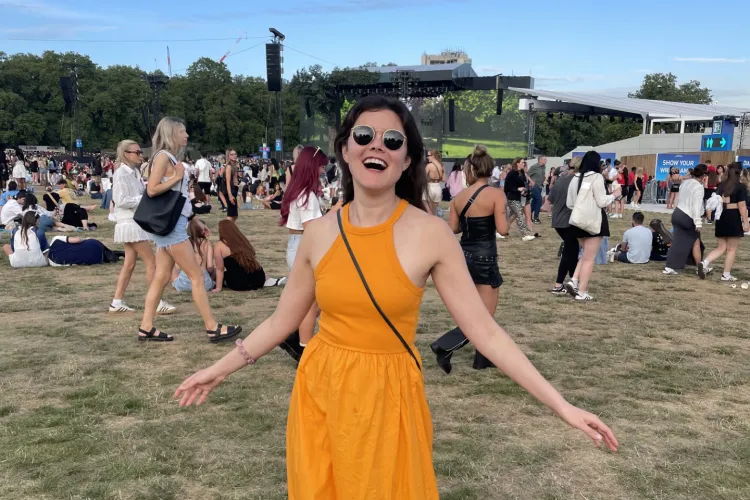
Sarah Cleary, Ph.D. '18
Lives in: Oxford, United Kingdom
Major: Chemistry
Current position: Chief Scientific Officer and Co-Founder of HydRegen
What work looks like: “My overarching role is to ensure that my biotech company’s scientific goals are aligned with our commercial objectives. This entails directing the chemistry team to innovate and develop our technologies, managing customer projects, and collaborating with my fellow leaders on company strategy.”
What she loves about it: “I love applying my scientific background to something that has tangible, real-world application. For example, we are currently working with manufacturers to develop more sustainable production routes to common medicines like acetaminophen. I also love that my job has introduced me to new ways of thinking about chemistry and taught me a lot about the commercial side of the sector. I’ve learned on the fly about what it takes to run a start-up company, which, in addition to chemistry, includes marketing strategies, building relationships with customers, intellectual property, and managing people and teams.”
What she gained from a liberal arts education: “I’ve gained truly valuable skills that have made me a better leader, including writing and communication (such as translating difficult concepts into something understandable), navigating complex challenges, and creating strong teams out of individuals with varying interests and backgrounds. The steps I’ve taken in my career have all hinged on my scientific background, strong communication, effective project management, and an openness to collaborating and sharing knowledge with my colleagues. Beyond my career path, I feel that my well-rounded education has been hugely influential because it helped me form my worldview and solidify my personal values.”

Merete Cowles '23
Lives in: Rongo, Kenya
Majors: Health and Society and Anthropology
Current position: Communications & Learning Fellow at the Lwala Community Alliance through the Princeton in Africa Fellowship Program
What work looks like: “As the field contact for Lwala’s communications team, I am responsible for developing communications materials that tell the story about Lwala’s work and impact, and the importance of community-led health.”
What she loves about it: “I love how engaged my work is with the local community. I get to build meaningful connections with beneficiaries and help amplify their voices on a global scale. I am proud to work at an organization with a 96% Kenyan staff that truly embodies the principles of community-led and sustainable health interventions.”
What she gained from a liberal arts education: “When I think of my education, I think of exploration, collaboration, and curiosity. The liberal arts approach challenges you to constantly expand your comfort zone, empowers you to ask questions, and encourages you to learn from both peers and professors. One of the most important skills I honed was collaboration. With so much overlap between majors throughout my coursework, I was able to work with people from all different areas of expertise. I also learned to reflect on my own strengths and weaknesses, work in a group, and engage in critical discussions seen through many different lenses. These skills have made me a better leader, delegator, listener, and teammate when it comes to fieldwork and problem-solving. Learning without the confines of a single-track structure allowed me to explore interests and build skills that made me a more interesting person. I think it’s important to approach college as not just a way to get a degree, but as a holistic investment in yourself.”
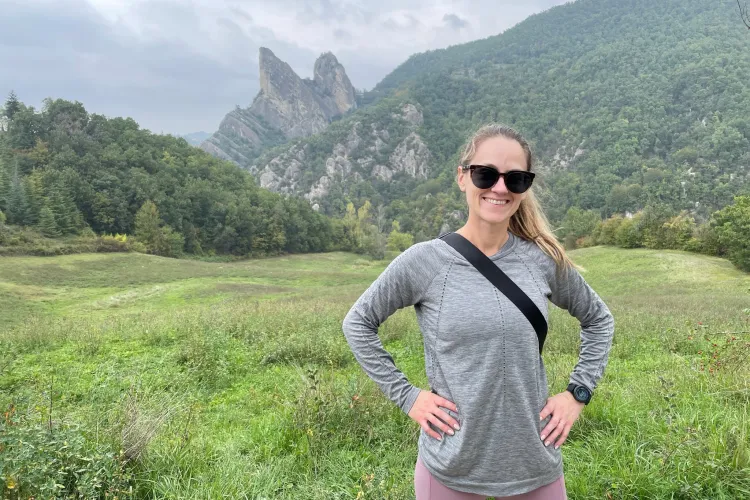
Robin Craren '10
Lives in: Drexel Hill, PA
Majors: Art History and Political Science
Current position: Senior Coordinator for Collections Information and Research at the Barnes Foundation
What work looks like: “I manage and do research into, and the writing of interpretive materials for, the art collection at the Barnes Foundation. I also work closely on projects related to our archival materials and publications.”
What she loves about it: “I enjoy engaging directly with art objects and being able to tell stories about them to the public. I also find their histories fascinating and fun to explore, both from the aspect of how they fit into history or an artist’s career and from the perspective of where they came from and how they ended up in our collection.”
What she gained from a liberal arts education: “I gained such a wide set of skills from my experience in the College of Arts and Sciences. Being able to take classes in different, but related, areas has helped me immensely and given me the ability to make connections between disparate subjects. The language and writing skills I gained have been the most helpful. Having a foundational understanding of government, history, language, and the arts has helped me to make connections within my writing and have a better understanding of our place in history. Studying the liberal arts has been very important to my overall career and life. Had I not had the opportunity to take that first art history class, I wouldn’t have pursued a career path in the museum field, I wouldn’t be in the position I hold today, and I wouldn’t be able to engage with art in a way that I find fulfilling.”
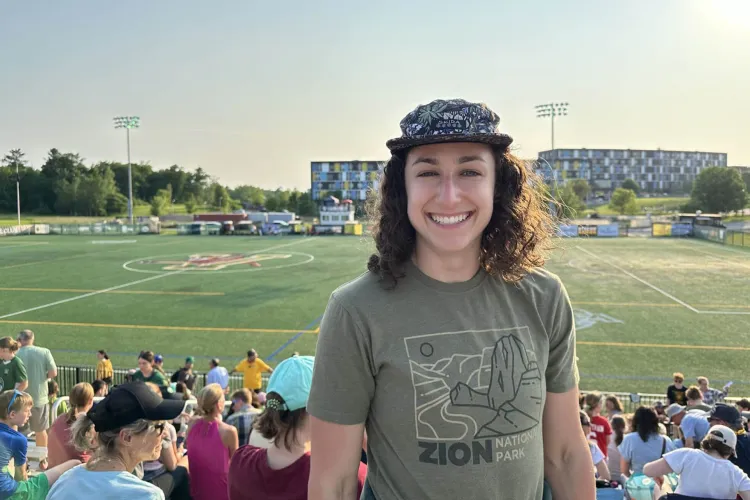
Azilee Curl ’20
Major/minor: Neuroscience major, Behavior Change Health Studies minor
Lives in: South Burlington, VT
Current position: Health and Wellness Coach and Heath Technology Consultant
What work looks like: “Through 1:1 sessions, I help people improve their lives. We might focus on spending more time outdoors, building deeper community connections, or drinking more water. Together, we design small, science-backed action steps that help them reach their goals. As a Health Technology Consultant, I help health businesses build software that makes the science of wellness accessible and compelling to all.”
What she loves about it: “What I value most are the constant opportunities to connect deeply with others. I love learning about other people’s lives, helping them become aware of their strengths and values, affirming their hard work, and having fun along the way!”
What she gained from a liberal arts education: “I discovered the importance of looking at every situation from multiple angles. The more diverse a background someone has, the more likely they are to solve a problem considerately and effectively. My liberal arts education taught me that some of the most valuable lessons are learned in the most foreign of situations. By taking classes outside my specialty and comfort zone, I learned the value and growth potential of exposing myself to unfamiliar stimuli. Taking a dynamic and multidisciplinary approach to problem solving, career development, and my passions has contributed heavily to where I am today. Thanks to my consideration of other perspectives, I’m a better coach, consultant, and all-around human being.”
D
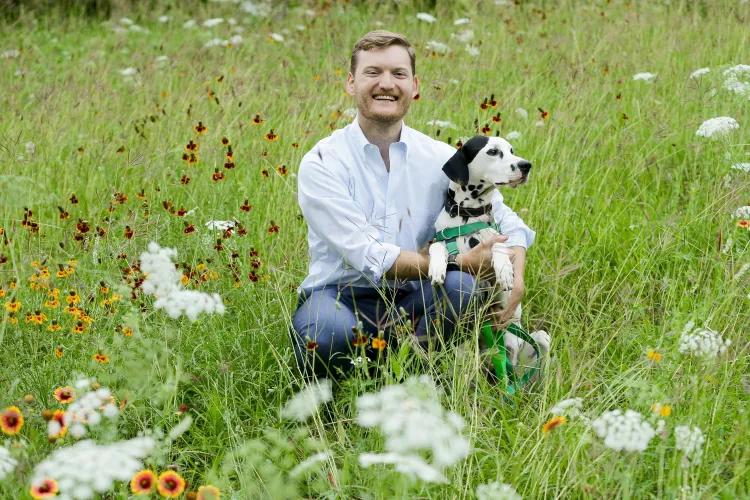
Zach Despart '12
Lives in: Austin, TX
Majors: Film and Television Studies and Political Science
Current position: Investigative Reporter for the Texas Tribune
What work looks like: “I investigate power in the second-largest U.S. state. Often, this involves exposing government corruption, waste, incompetence, and other failures by those in charge. I travel around Texas and follow the stories wherever they need chasing. Most recently, I spent 18 months investigating what went wrong during the Uvalde elementary school mass shooting. Our team’s work was awarded the Collier Prize and was named a finalist for the Pulitzer Prize.”
What he loves about it: “Journalism is one of the very few professions where you get to meaningfully interact with people from all walks of life. I’ve interviewed homeless people, billionaires, criminals, victims, teachers, janitors, soldiers, activists, undecided voters in suburbia, professional athletes, farmers, small-town mayors, members of Congress, and everyone in between. You get such an appreciation for the richness and diversity of this country. Each story is an opportunity for adventure.”
What he gained from a liberal arts education: “A well-rounded liberal arts education is the best preparation for a career in journalism. Reporting demands that you learn a lot about a given subject quickly, plus you need to make a compelling case for why people should give interviews to you, especially vulnerable sources who may face consequences for doing so. There is no singular major or academic program that is ideal for aspiring journalists. Rather, the best preparation is a broad-based education focused on developing skills including critical thinking, analytical reasoning, problem solving, creativity, research, and communication. I use all those skills every day as a reporter.”
F
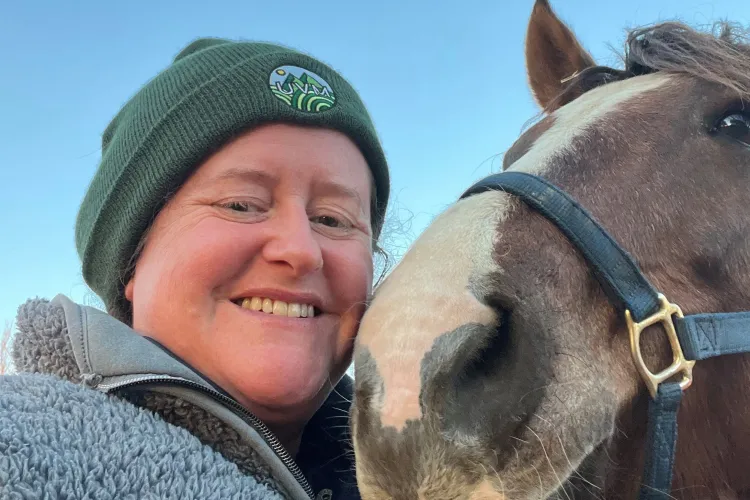
Emily Florio '04
Lives in: Washington, DC
Major/minor: English major, Communication Science minor
Current position: Director of Knowledge Research at DLA Piper LLP (US)
What work looks like: “I lead a team who provides specialized research and database/resources support to the 1700 US lawyers in our law firm. As the director, I oversee everything, including the budget, attorney requests, training, and adopting new technology. In addition to my paid job, I am heavily involved with the American Association of Law Libraries, mentoring newer law librarians, volunteering generally, and speaking at the annual conference and on webinars.”
What she loves about it: “Every day is different, and it is impossible to get bored. Our firm has been a pacesetter regarding generative AI in the legal space, so it has become fairly all-consuming. I read a lot about the development and use of these tools and have become a go-to law librarian speaker on the topic.”
What she gained from a liberal arts education: “Analyzing, writing, and speaking about literature prepared me to have an inquisitive mind and read between the lines of what lawyers are actually asking us to do rather than simply what they think they are asking for. I regularly speak with professionalism and authority to firm leaders and attorneys, which is akin to the many times I had to sell my perception of an author’s intent or persuade someone to understand. I am thankful to have received a well-rounded liberal arts education that encouraged us to learn in engaging ways that went beyond simply reading homework, taking written exams, and listening to lectures.”
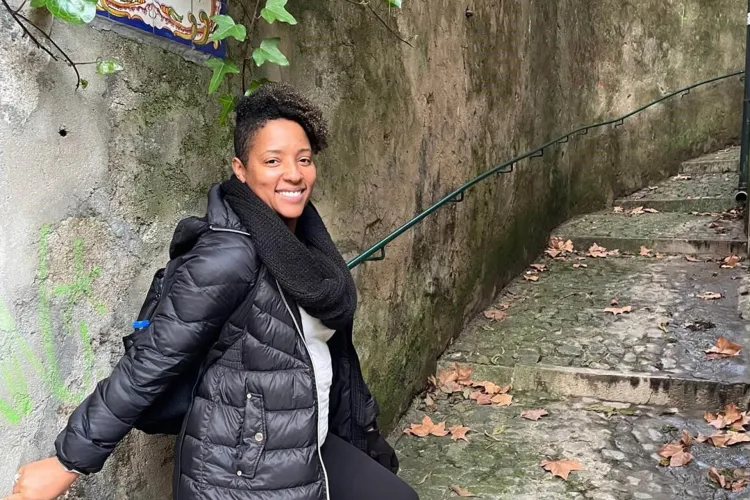
Leniece Flowers ’05
Major: Sociology
Lives in: Oakland, CA
Current position: Senior Global Program Manager for Diversity, Inclusion, and Belonging at LinkedIn
What work looks like: “I lead the design, execution, and scaling of strategic initiatives that embed equity and inclusion across LinkedIn’s global workforce. I also serve as a trusted advisor to leadership councils and employee resource groups, guiding initiatives that elevate marginalized voices, advance equity goals, and foster psychological safety at scale.”
What she loves about it: “What I love most about the work is the alchemy—turning hard truths and lived experiences into systems change. I get to connect the dots between what’s broken and what’s possible and then design programs that don’t just check a box but shift culture, policy, and power. There’s something deeply fulfilling about creating spaces where people—especially those of us who’ve been pushed to the margins—feel seen, valued, and safe enough to lead as their whole selves.”
What she gained from a liberal arts education: “Critical thinking, persuasive writing, and the ability to analyze complex systems through multiple lenses—especially race, gender, power, and history—are all skills I gained. What’s more, my ability to ask the hard questions, synthesize information quickly, and communicate with clarity and conviction has shaped every step of my leadership journey. I consider my liberal arts education essential. It has given me the range to navigate boardrooms, communities, and global systems with equal fluency—and the moral compass to lead with purpose.”
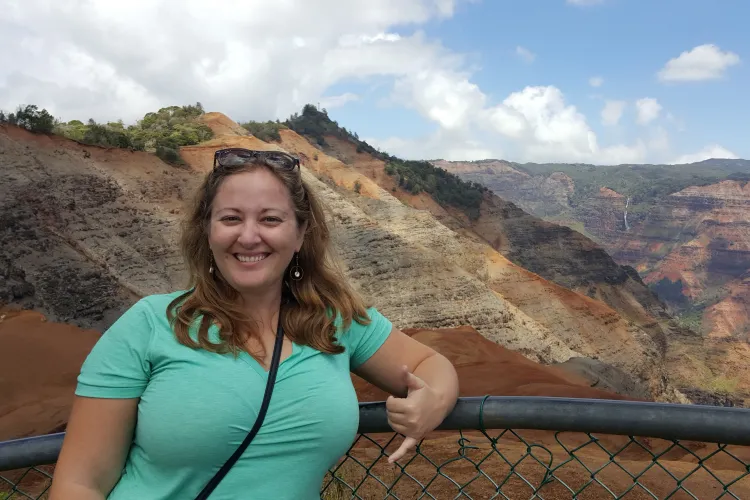
Abby G. Frazier '08, Ph.D.
Lives in: Worcester, MA
Majors/minor: Geography and Mathematics double-major, Economics minor
Current position: Assistant Professor of geography at Clark University
What work looks like: “I mainly teach and do research. I am a climatologist, so my research looks at better understanding how climate is changing and how it impacts water resources and ecosystems. I lived in Honolulu for 12 years, and I mainly work in Hawaii and the Pacific Islands studying drought and working with local resource managers and communities to build resilience. I was the chapter lead author of the Hawaii-Pacific Islands chapter of the 5th U.S. National Climate Assessment. On the teaching side, I work with both undergraduates and graduate students, teaching courses like Earth System Science, Hydroclimatology, and Climate Dynamics.”
What she loves about it: “I love so many aspects of my job. The most rewarding part is seeing the impact of my work and helping make sure that what I do is actually useful and making a difference in the world. As a professor, I not only get to do this through my research, but also through teaching students. I’m incredibly lucky to be in this position.”
What she gained from a liberal arts education: “I think my liberal arts education helped me to remain well-rounded in how I see the world. It exposed me to a wide range of subjects and really allowed me to explore my interests and find the fields I am passionate about. In addition to math and science, I loved being able to take a musical theater class my senior year!”
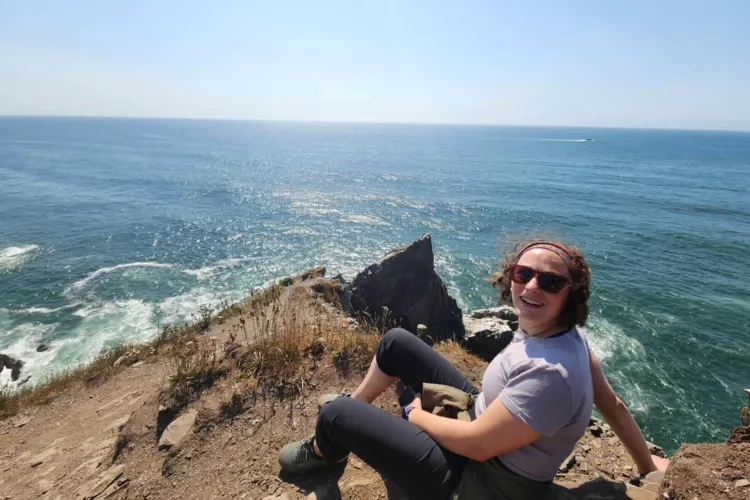
Eliana Fox ’19
Major/minor: Geography major, Religion minor
Lives in: Burlington, VT
Current position: Transportation Planner at the Chittenden County Regional Planning Commission
What work looks like: “I work with cities and towns to develop multimodal transportation plans that address issues around safety, accessibility, and sustainability. The work itself varies day-to-day and includes collecting and analyzing traffic data, working with municipal officials and the public to inform our transportation studies, creating surveys and maps for projects and plans, and more.”
What she loves about it: “The thing I love most about my job is working with people in Chittenden County to plan for transportation systems that positively contribute to their community’s quality of life, economy, and public health. I fell in love with Vermont when I came to UVM as a student and it is so important to me to give back to this place by working in the public sector.”
What she gained from a liberal arts education: “The most important skills I gained are critical thinking, communication, and problem solving. I’ve needed all three to succeed professionally since graduating, but problem solving has been the most crucial for me recently. Innovations in data collection, analysis, and more in the transportation planning field mean things are constantly changing, and being able to research and teach myself how these technologies work has been invaluable. To sum it up, my liberal arts degree empowers me to say, ‘I’m not totally sure how this thing works, but I am totally capable of figuring it out.’”
G
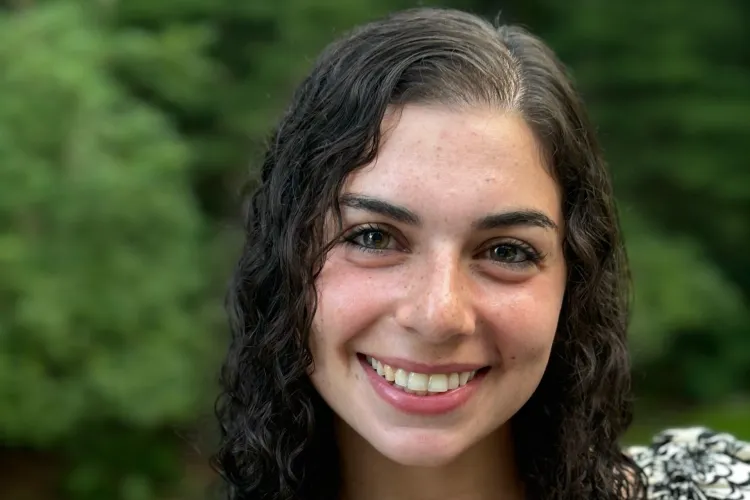
Claudia Garber '18
Lives in: Boston, MA
Major/minor: Linguistics major, French minor, Honors College
Current position: Senior Linguist for Sonos Voice Control
What work looks like: “I work on the Machine Learning/Voice Assistant team for a tech company. Behind every voice assistant there are linguists who help with automatic speech recognition and spoken language understanding. I design textual data to account for variation within the English language, audio data sets to include a variety of voices, and pronunciation dictionaries to help the models better recognize human speech.”
What she loves about it: “My team and office are based in Paris, and my role allows me to foster my love of both French and linguistics, as we have many meetings in French. I love the cross-cultural dynamic of my workplace and am lucky enough to get to travel to Paris for work!”
What she gained from a liberal arts education: “It allowed me to explore different avenues as an undergraduate, which in turn helped me develop a multi-faceted approach to problem-solving. I can see the big picture and how smaller pieces of that picture are interconnected. In my current role, I manage many different workflows, and the multi-faceted nature of my job sometimes just feels like a continuation of my experience in the liberal arts. I also find that my perspective is sometimes different from that of the scientists and engineers. With a liberal arts background, I have learned to think about problems in multiple contexts—and this ability has helped me to get where I am today. Though I may not have the computational or engineering skills of the typical person in my field, I feel respected and valued because of the perspectives I bring to the table.”
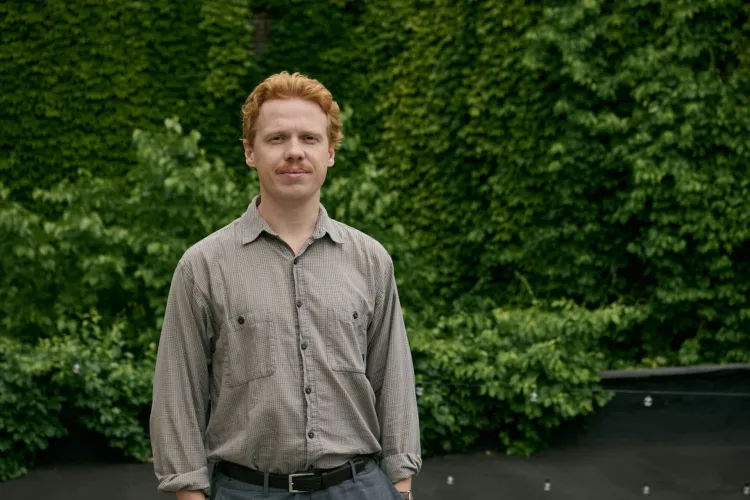
Emmett Gartner ’20
Major: Environmental Studies
Lives in: Portland, ME
Current position: Environmental Journalist for The Maine Monitor
What work looks like: “We prioritize long-term, investigative stories that hold power to account and provide in-depth context on complicated topics. That mission gives me the freedom to dig into a wide range of environmental issues and take the time to diligently report them out.”
What he loves about it: “In any given week I could be shuttling between legislative hearings at the state capitol building in Augusta, riding a lobster boat out into the Gulf of Maine, hiking around the White Mountains, or simply sitting and speaking with a family in their living room. I’m so thankful to have the opportunity to meet people where they are and share their stories.”
What he gained from a liberal arts education: “More than anything, it taught me how to read and write analytically about a variety of topics, and a career in investigative journalism requires practicing those skills on a daily basis. As I bounced around different minors and concentrations, pursuing whatever interested me, I used the same core skills to break down the materials and synthesize their findings into research papers and presentations. Knowing how to do that has given me the confidence I need to stare down dense sources of information and walk away with a thorough understanding of their content. My liberal arts education has made me a better communicator and fuels my appreciation and appetite for learning outside my job, too.”
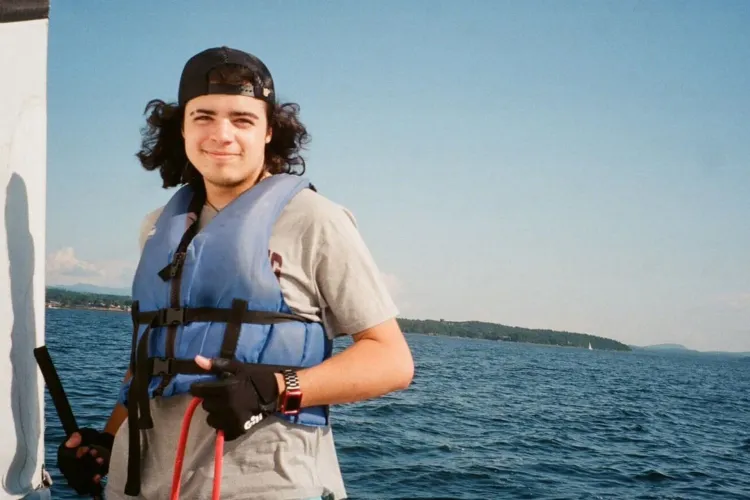
Noah Gowell ’22
Major/minor: Biology major, Chemistry minor
Lives in: Winooski, VT
Current position: Medical Assistant at the Community Health Center
What work looks like: “I conduct patient intakes, do clinical tasking, trace ECGs, perform ear lavages, draw blood, administer vaccinations, and perform point-of-care laboratory testing.”
What he loves about it: “I really enjoy being able to work one-on-one every day with providers who love teaching. Additionally, working for the Burlington area’s main federally qualified health center (FQHC) allows me to serve my community and directly combat healthcare disparities.”
What he gained from a liberal arts education: “I learned how to conduct scientific research and consult peer-reviewed literature, how to write a proper scientific report, and, most importantly, how to retain course content. This has not only helped me in my daily life as a medical assistant but also as I completed work for my master’s degree in Pharmacy. I also feel having a well-rounded education has made my interactions with my patients much better than they would have been otherwise. One of the biggest barriers to care that patients face is interacting with healthcare professionals who don’t have good social skills or knowledge of other subjects. Best of all, my strong foundation of scientific knowledge has prepared me to attend UVM’s Larner College of Medicine this summer!”
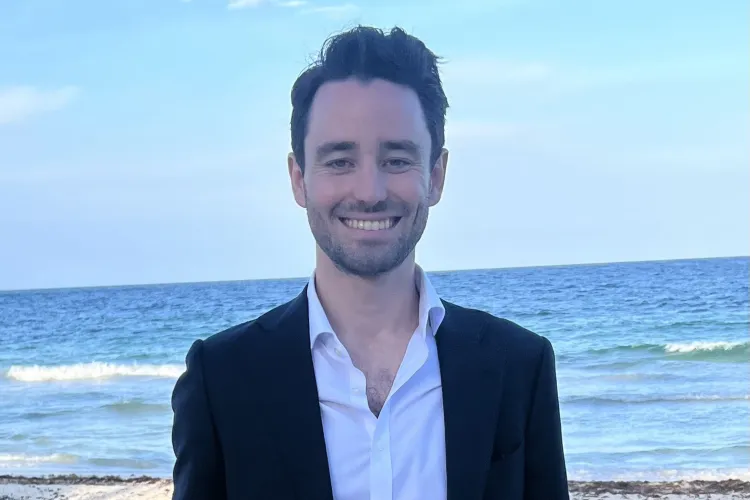
Jake Guarino '17
Lives in: Boston, MA
Major/minors: Economics major, Finance and Political Science double-minor
Position: Corporate Development Associate at Spotify (entering MBA program at Harvard Business School in fall 2024)
What work looks like: “My job entails both mergers and acquisitions and strategic work. Our team is tasked with executing acquisitions and divestments as we look to grow the business inorganically. When we are not in a live deal process, we help senior leaders develop strategic goals for our main content verticals, which include music, podcasts, and audiobooks.”
What he loves about it: “Helping craft the strategy for a product that impacts the experience of hundreds of millions of users around the world is very exciting. It is also interesting to work in media as we continue to compete against fast-growing and equally large platforms such as TikTok, YouTube, Instagram, and others.”
What he gained from a liberal arts education: “Understanding how the interplay of finance, economics, and politics impact real-world decision-making was a key learning from my liberal arts education. Instead of focusing within one specific niche, I was able to gain a broad understanding of many different focus areas. Diversity of experiences is, I think, key to where I am today. I was able to leverage my degree and to get internships in advertising, non-profit work, and finance, and ultimately decided to pursue a career in finance.”
H
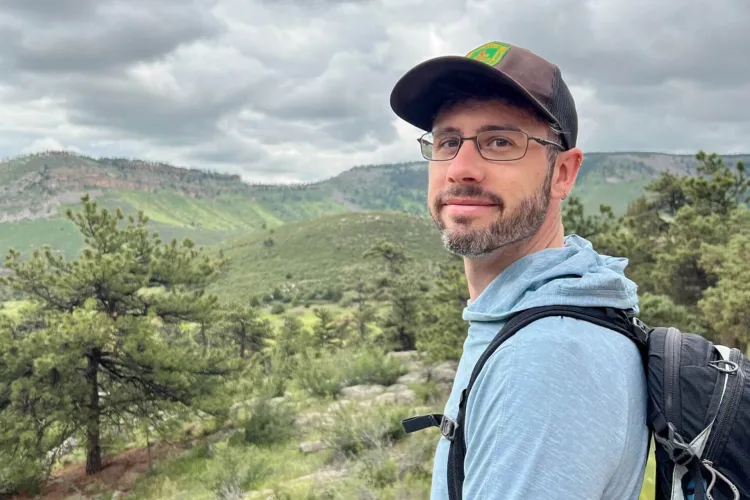
Dylan Hudson ’13
Major: Ancient Greek
Lives in: Boulder, CO
Current position: Lead Data Scientist at Enzoic
What work looks like: “I do data collection and research, write software to process and analyze the data, and report on the results. I'm basically always trying to learn something new or figure out how to make computers do the boring parts.”
What he loves about it: “It's a tie between getting to collaborate with all kinds of people in many different fields and industries and getting to work with large data systems that can transform the ways we use and experience information.”
What he gained from a liberal arts education: “The most important thing I learned was how to cultivate my own curiosity and broaden my awareness of different ways of thinking. Also, reading comprehension and writing have been indispensable in being able to learn and adapt quickly in professional settings, and to communicate effectively in a wide variety of scenarios—those have been the most impactful skills for my career advancement. My liberal arts education gave me the ability to choose how I want to think and the confidence to follow my own path. It's been integral to my ability to see the bigger picture, define my own professional and personal goals, and maintain excitement for continuous learning and growing.”
I
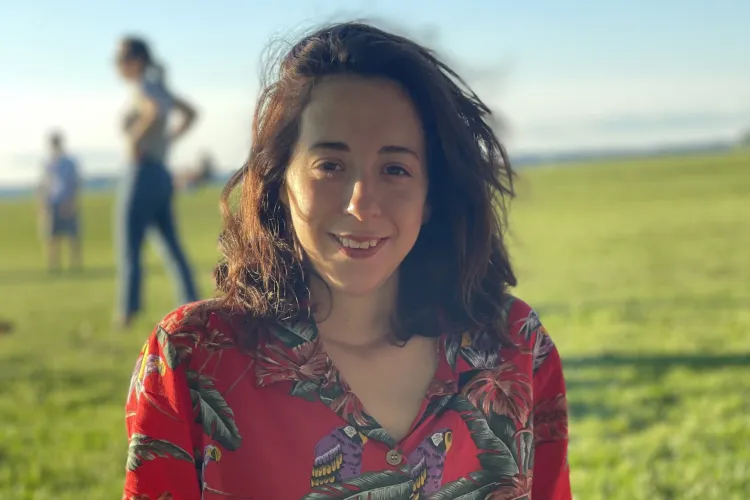
Sameera Ibrahim '16
Lives in: Seattle, WA
Majors: Geography, Global Studies, and Political Science
Current position: Population Inequities Research and Outreach Coordinator at the University of Washington
What work looks like: “I organize focus group discussions and interviews with refugee and immigrant communities across the Greater Puget Sound area, draft research reports and policy briefs for Washington State legislators, consult with community partner organizations, and analyze census data and qualitative interview data.”
What she loves about it: “The wide range of individuals and organizations I get to interact with on a daily basis.”
What she gained from a liberal arts education: “It has been important to me to have received such a well-rounded education. In no particular order, I’ve gained curiosity about the world, a dexterity to read across different genres of writing, the awareness that there is never just one approach or perspective to a problem, and a strong foundation for writing and analysis. Across all my jobs since graduating, strong writing skills and the ability to write for different audiences has been a throughline.”
K
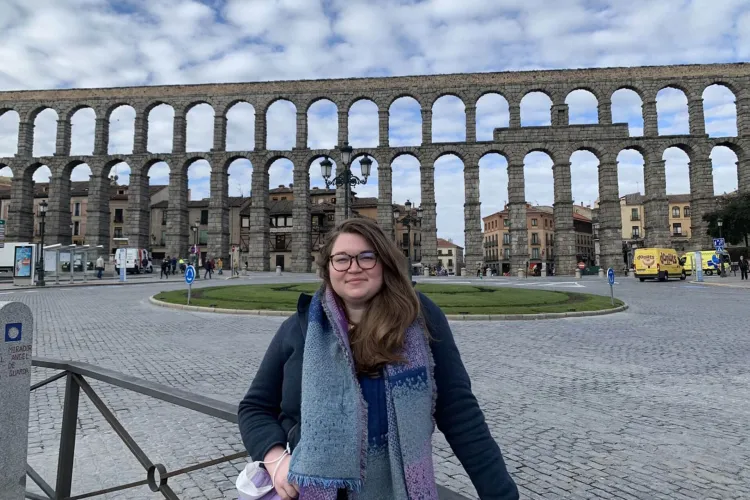
Jesse Keel ’19, M.A. ’20
Majors: English and History (undergrad), English (grad)
Lives in: Manchester, NH
Current position: Associate Preservation Specialist at Northeast Document Conservation Center
What work looks like: “I provide preservation assessments and consultations for libraries, archives, museums, and other cultural heritage organizations across the country. This means I evaluate how they store their rare books, historic documents, and photographs and help them plan how to best care for those items to ensure long-term access. I also teach workshops and webinars on a range of preservation topics.”
What she loves about it: “I love traveling to work with cultural heritage organizations of all shapes and sizes. It is a privilege to support the dedicated archival, museum, and library professionals who are doing the critical work of preserving history.”
What she gained from a liberal arts education: “I developed the ability to analyze complex problems, synthesize information, and communicate that information clearly. In my field, being an adept communicator is essential. In my previous role as a collections and exhibits manager at a historic house museum, strong communication skills helped me interpret history, curate exhibits, and advocate for funding and preservation work. Today, I rely on those same skills as I teach complex preservation concepts, assist with grant applications, and support cultural heritage professionals across the country. I’ve also developed a well-rounded sense of humanity. Being able to empathize with others and appreciate the diversity of human experience has helped me foster genuine connections with people and find deep fulfillment in my work.”
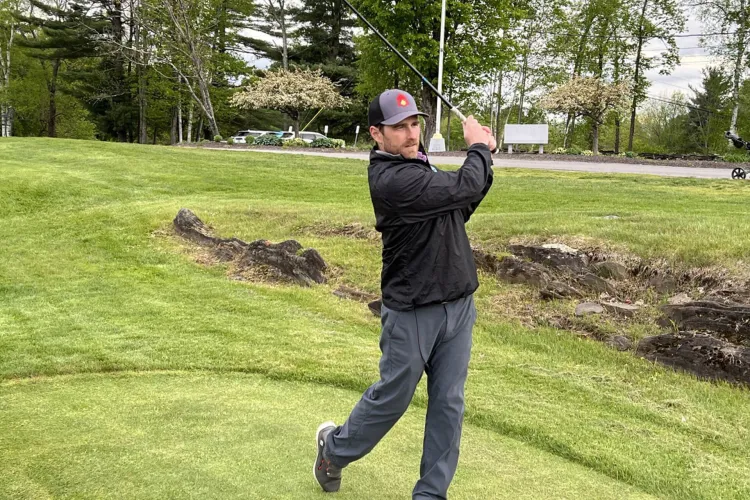
Ryan Knapp ’11
Major/minor: Geography major, Geospatial Technologies minor
Lives in: Plainfield, VT
Current position: Intelligent Transportation Systems (ITS) Section Chief at Vermont Agency of Transportation (VTrans)
What work looks like: “Our team builds, installs, maintains, and operates ITS infrastructure statewide, including digital message signs, road weather information systems, continuous traffic counters, and weigh-in motion systems. We also operate the Agency of Transportations Transportation Management Center.”
What he loves about it: “I really enjoy having a direct impact on serving the public, as we are a frontline unit that affects public safety on the roadways. We support emergency responses for small- and large-scale disasters and take pride in providing timely and accurate information to the public.”
What he gained from a liberal arts education: “Working in state government comes with its challenges. Patience and discipline are key to seeing projects through to completion and realizing the return on investment, and my liberal arts education taught me both. Relating to my co-workers, peers, and subordinates is another positive talent that I learned to leverage effectively. I thought I knew myself and what was important to me before I attended UVM, but my liberal arts experience proved me wrong. It opened my eyes to other perspectives, teaching me the importance of diversity of thought and how personal experiences are powerful in shaping the person you ultimately become. My experience has helped me build a successful career at VTrans by giving me tools to manage different personalities, roles, and experiences.”
L
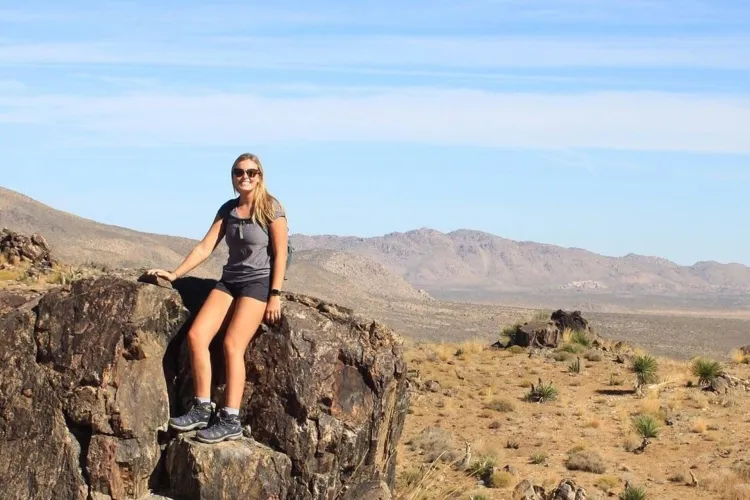
Mairé Lattanzi ’18
Majors: Religion and Anthropology
Lives in: Pittsburgh, PA
Current position: Analyst on the International Affairs and Trade team at the Government Accountability Office (GAO)
What work looks like: “The GAO is an independent, nonpartisan government agency within the legislative branch of the U.S. Government. We provide Congress, executive agencies, and the public with fact-based reporting with the goal of preventing fraud, waste, and abuse in the government. Our work usually culminates in a report containing our findings and recommendations. Right now, I am working on a review of the U.S.’s international efforts to combat human trafficking in countries experiencing armed conflict.”
What she loves about it: “I love that I get to have a role, however small, in improving our government and ensuring things are as efficient and effective as possible. I also love that I get to learn about, and become an expert on, a wide variety of topics.”
What she gained from a liberal arts education: “Through my liberal arts education I gained the ability to approach life, both professionally and personally, with a broad set of skills like communication, critical thinking, and creativity, and those skills have allowed me to bring a nuanced, multi-faceted view to the table. This ability to think about my work in ways that may be different from folks who come from a specific or specialized background has been invaluable. Being a generalist equipped with the skills and knowledge gained in large part from my education has been a large contributor to my professional successes.”
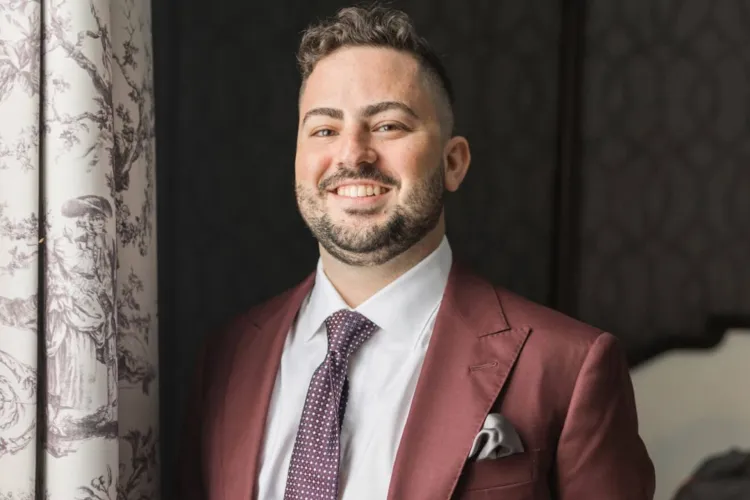
Andrew Lieberman ’13
Major/minors: History major, Statistics and Spanish minors
Lives in: Brooklyn, NY
Current position: Director of Partner Management at Celonis
What work looks like: “I manage the delivery and success of our software deployments through our partner ecosystem, which includes large consulting firms, boutique shops, tech vendors, and other groups that share the same passion and vision for our value proposition. ”
What he loves about it: “My team is the best. I get to work with some unbelievably talented people across the globe. They make my job easy, and I know customers are getting top notch professionalism and partnership ”
What he gained from a liberal arts education: “The business world is moving at a break-neck pace, and a liberal arts education teaches you to learn and adapt. I work with partners and customers from around the globe, and having a background in history allows me to apply more context in business and cultural practices. My goal is always to act neighborly toward my clients and partners, and the first step of that is to understand someone else’s perspective and background. Yes, learning hard skills and technology is important, especially to get your first few jobs, but emotional intelligence and creativity are how you thrive in your career. UVM gave me a great balance of both.”
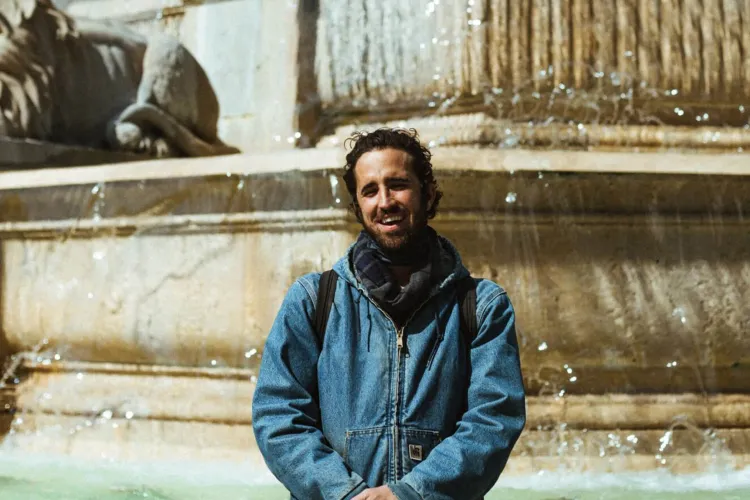
Samuél Lopez-Barrantes ’10
Major: European Studies
Lives in: Paris, France
Current position: Novelist and Literary Tour Guide
What work looks like: “I write novels and walk people around Paris, telling them stories about modernists, existentialists, and Nazis, oh my.”
What he loves about it: “The best thing is meeting people from all walks of life and forever learning more about one of the most edifying cities in the world.”
What he gained from a liberal arts education: “It provided me with a Cubist approach to understanding the world, which means we must look at the ‘truth’ from various angles. Learning about the confluence of history and art, in particular, has taught me how to approach my own creative work in the context of the 21st century, keeping sight of the importance of radical authenticity when it comes to being oneself and recognizing the underlying movements and zeitgeists that influence each successive generation. My liberal arts education has been foundational to my professional life as a musician, novelist, and literature teacher. I taught creative writing at the Sorbonne for six years thanks to my academic background, but I now teach literature in the streets of Paris thanks to my more holistic liberal arts education. I am so grateful for the opportunity to have the time, space, and intellectual support to become more of the writer and thinker I was meant to be.”
M
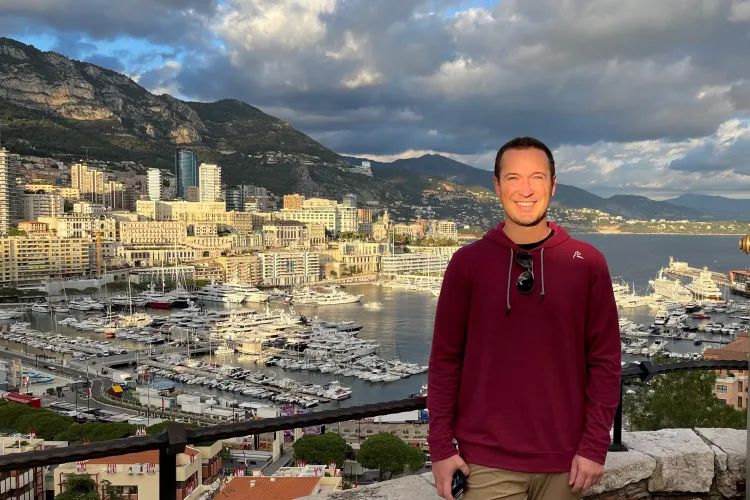
Jason Maulucci '17
Lives in: Essex Junction, VT
Major: Political Science
Current position: Campaign Manager for VT Governor Phil Scott
What work looks like: “My primary objective is to work to reelect the Governor. As Campaign Manager, that includes everything from setting strategy, fundraising, and doing media relations, to working with other candidates who share the Governor’s vision, budgeting, and more. Previously, I served for four years as the Governor’s press secretary and a senior policy advisor.”
What he loves about it: “No day is ever the same. In the world of politics, there are always new challenges and opportunities.”
What he gained from a liberal arts education: “I’m a big advocate for getting a liberal arts education. It helps create well-rounded citizens with a diverse set of skills. When you work for a governor, you deal with all sorts of issues, from economics to human services, natural resources, and more. A liberal arts education best prepares you for a job where you’re dealing with a whole host of subjects, because you can draw on the skills you learn and apply them in so many ways.”
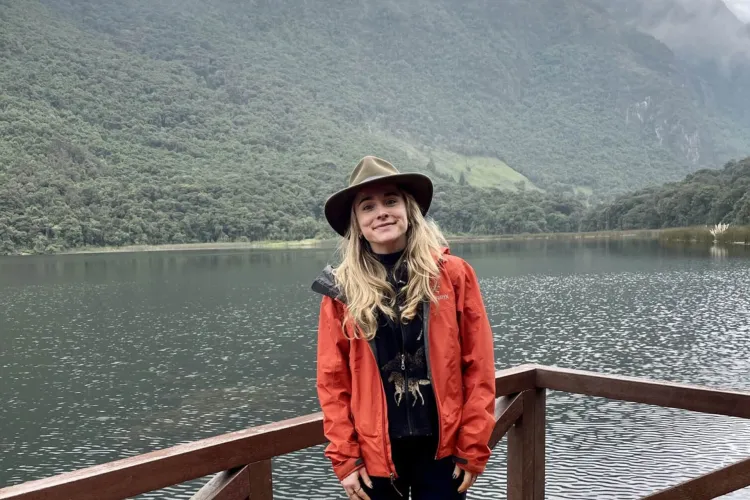
Ashley Elizabeth Miller ’23
Major/minor: English major, Reporting and Documentary Storytelling minor
Lives in: New York, NY
Current position: Freelance Journalist and Pulitzer Traveling Fellow at Columbia University
What work looks like: “Reading the news. Interviewing people. Covering an array of events. Pitching and writing stories. Finding new ways to reach an audience. Not getting discouraged when a story is shut down. Understanding views different from my own.”
What she loves about it: “Every day I learn something new. I speak to politicians, business leaders, academics, scientists, artists, and—most interesting to me—regular people who are impacted in the stories I cover.”
What she gained from a liberal arts education: “As AI threatens to make us all one, the liberal arts encourage us to be individuals. Looking back, my education gave me the courage to think for myself. Instead of seeing life as a predetermined plan that must be followed, the liberal arts encouraged me to see my life as a painting that I get to create. I am a unique person because of my education, just as every student was and is. We pursue our interests in subjects that make us human, enabling us to find ourselves along the way. And in an era in which thinking critically—looking up from one’s phone and walking into the woods, questioning the popular narrative, having an original idea, reading a book all the way through—has become undervalued, having a well-rounded education has taught me to think for myself and come to my own conclusions.”
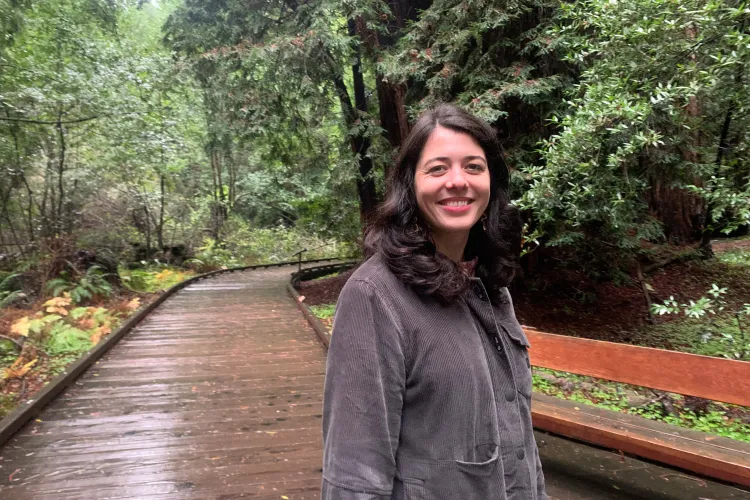
Tilden Mitchell '18
Lives in: Berkeley, CA
Major/minors: Geography major, Chinese and Asian Studies double-minor
Current position: International Programs Manager at Gravity Water
What work looks like: “Gravity Water turns rain into safe water for schools throughout Southeast Asia by installing innovative rainwater harvesting and filtration technology. My role involves coordinating the planning and execution of multiple in-country initiatives in Vietnam, Nepal, Malaysia, and Taiwan.”
What she loves about it: “I love the intricate challenge of collaborating with team members across multiple countries. From government regulations and public perceptions of water to the availability of materials and operational logistics, each project demands a unique approach viewed through its own cultural lens. It’s fascinating and rewarding to address these diverse challenges while working towards our common mission.”
What she gained from a liberal arts education: “Reflecting on my education, I realize how invaluable a well-rounded liberal arts education has been for me. While I may not have fully grasped its benefits at the time, I now see its profound impact. Engaging in conversations with a diverse group of 20 students from across the country and around the world broadened my perspective. This experience taught me to view issues from multiple angles and to empathize, even when I didn't agree. It has been instrumental in shaping my ability to navigate and understand complex, multifaceted challenges in my professional and personal life. Developing personal connections is what truly makes a difference in development work, and that’s something I learned at UVM. I also became adept at creative problem-solving, which was the key for me in terms of getting where I am professionally!”
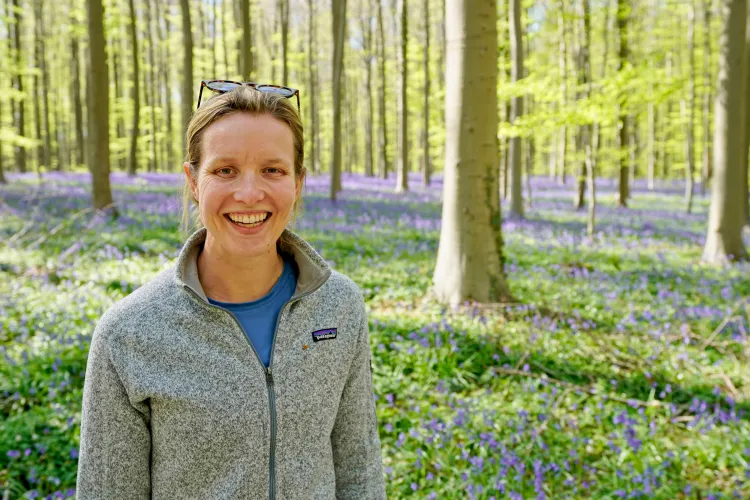
Acadia Moeyersoms '17, Ph.D.
Lives in: Durham, NC
Major: Biochemistry
Current position: Senior Scientist II at Becton Dickinson
What work looks like: “I work for a medical technology company that is a leader in healthcare. In the Early Research and Development Center, we help identify unmet needs and conduct early-stage research on new healthcare technologies before they are moved into product development. I am currently working on a cancer diagnostic test.”
What she loves about it: “I love the people I work with and having the ability to contribute to new technologies that can help people. Working at a large medical technology company allows me to see the true impact we are making in terms of helping health care workers provide better care and helping patients get better care.”
What she gained from a liberal arts education: “My liberal arts education provided me with the opportunity to gain other skills outside of scientific labs and scientific writing, like the ability to communicate my thoughts, ideas, and findings. In my writing classes, I had to learn how to express myself and my thoughts in a creative, compelling way, something that has helped me be able to talk at professional conferences and give seminars. In an acting class I took, I had to get comfortable with public speaking, which helped me gain confidence to give talks to large audiences. And by taking economics, philosophy, Honors College, and many other types of classes, I was able to practice communicating topics I was not so familiar with.”
N
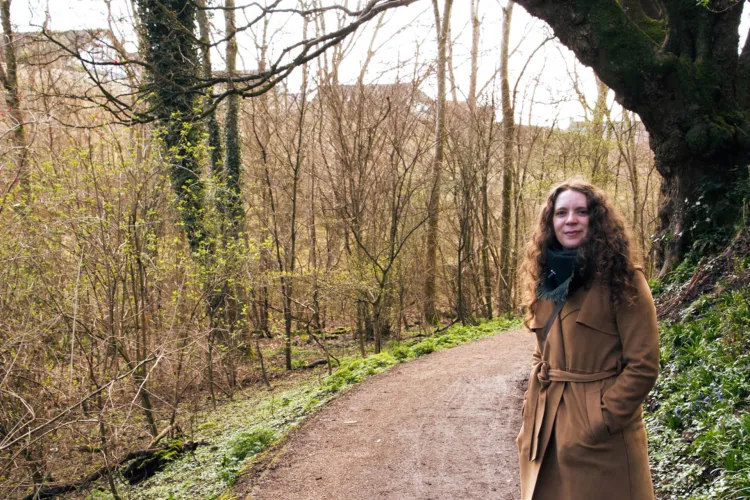
Katharine L. Noiva ’13
Major/minor: Art History major, Studio Art minor
Lives in: Hinesburg, VT
Current position: Director of Visitor Experience & Learning at Lake Champlain Maritime Museum
What work looks like: “I supervise the Visitor Experience team and make sure the programs we offer support the mission, vision, and values of the Museum. I also support our exhibits, helping ensure they are written and designed to be accessible to a broad audience.”
What she loves about it: “I love witnessing the ‘light bulb’ moment when a visitor discovers something that directly links to their own experience. I believe making those connections gives people a sense of kinship with the past and helps them be more involved with and engaged in their futures.”
What she gained from a liberal arts education: “It gave me a solid understanding of a wide range of areas, taught me to be a better researcher and writer, and showed me how to engage with new and unfamiliar topics. Through the liberal arts, I developed the ability to find information through close observation and attention to detail, a skill that has been particularly useful as I’ve trained docents and learned to interpret historic collection items. Having a well-rounded education that covered a range of disciplines has been vital to my career, especially as I’ve grown professionally and changed positions and locations. It has provided me with the confidence to dip into new subjects and quickly gain a baseline understanding—a valuable tool in my profession.”
O
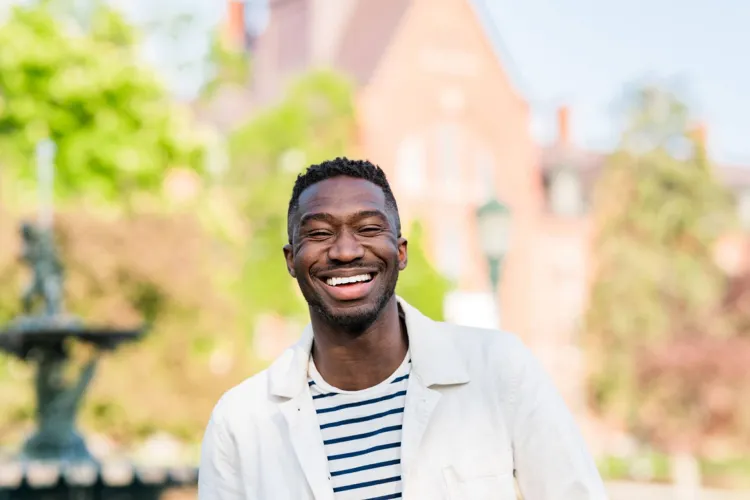
Joey Oteng ’15, J.D.
Major: Religion
Lives in: Columbus, OH
Current position: Visiting Assistant Professor, Attorney, Ph.D. Candidate
What work looks like: “As a professor, I create, organize, teach, and evaluate students in a variety of law-related courses. As an attorney, I serve as a hearing officer in the Teen Court program, adjudicating cases for the court-operated intervention program for first-time misdemeanor youth offenders. As a Ph.D. candidate, I am completing my dissertation to graduate in May ’26 with a degree in Educational Studies in Philosophy and History of Education from the Ohio State University, where I also teach.”
What he loves about it: “Getting to be a professor has been deeply fulfilling. I get to help students reimagine their relationship with learning and educational institutions and empower them to be co-creators in their own education. I get to serve as a mentor, an advisor, a counselor, a supporter, a challenger, and a caregiver for students on top of being professor.”
What he gained from a liberal arts education: “I gained useful skills in critical thinking, effective communication, and sustainable community engagement. I believe that to be well-educated is to be educated in the variety of ways necessary to be an informed civic actor who is able to engage with disciplines thoughtfully, make enlightened decisions for self and community, and know the breadth and depth of their knowledge. I know where my expertise is and I know not only when I need more education, but how to gain that education. My liberal arts education allows me to be dynamic in all the roles I play.”
P
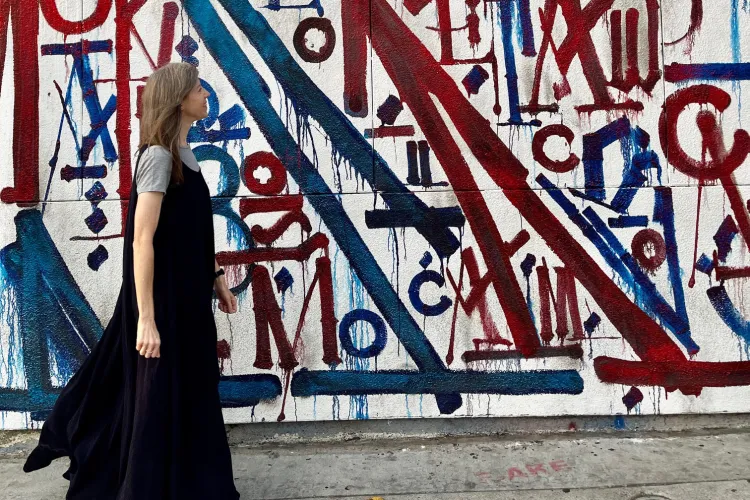
Liz Paley '88
Lives in: New York, NY and San Francisco, CA
Major: Political Science
Current position: Founder & Principal at Framework Consulting
What work looks like: “I provide objective perspective, thought partnership, and counsel to leaders in areas such as defining and articulating corporate strategy, setting leadership strategy, aligning organizational structure to business objectives and priorities, and crafting internal and external messaging. Put another way, I help leaders and companies be more clear, more effective, and more impactful.”
What she loves about it: “What I do now taps into everything I enjoyed about my previous professional chapters and gives me the satisfaction of seeing the result of my input and involvement more immediately. I’ve often described myself as being professionally happiest when I am ‘the person behind the person,’ and I feel that way about the role I play for CEOs and other leaders. I’m also very stimulated by working across a broad range of industries and with leaders and companies of all shapes and sizes.”
What she gained from a liberal arts education: “It’s painting with a broad brush to describe a great liberal arts education as the foundation for everything, but I really feel that way. For me, it sparked my curiosity about a lot of subjects, fueled an ongoing love of learning, gave me a greater appreciation for the value of cross-disciplinary thinking, and taught me how to write with skill and care. I am grateful for and tap into that well-rounded education every day, whether in my work, my cultural pursuits, or my engagement with the world around me.”
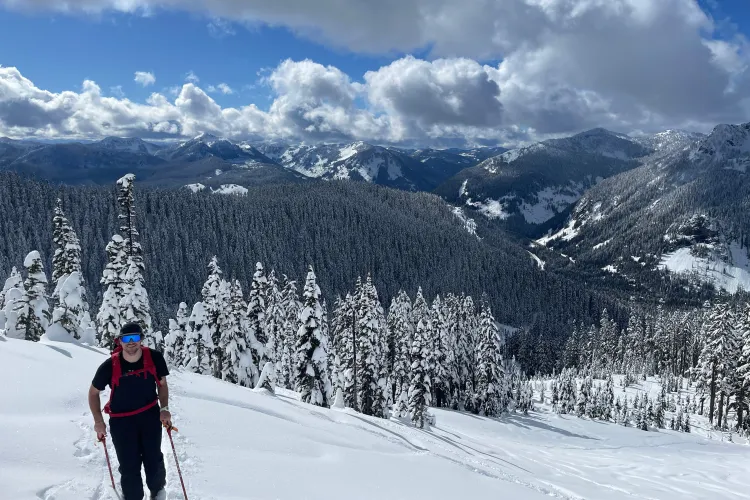
Sam Pasqualoni '22
Lives in: Boston, MA
Major: Neuroscience
Current position: Research Associate at the Broad Institute of MIT and Harvard
What work looks like: “In my lab, we study the effect synaptic dysfunction on the occurrence of neurological disorders. I am responsible for conducting and planning experiments, maintenance of laboratory space, and writing literature.”
What he loves about it: “Daily problem solving and the expectation to stay current with contemporary science push me to continuously grow and learn.”
What he gained from a liberal arts education: “I had the opportunity to minor in English, which provided excellent literary skills that I never truly appreciated until I had the opportunity to exercise my writing among my colleagues. The ability to write concisely, which is extremely important to scientific diction, has helped me get where I am professionally. In general, I feel my liberal arts education has given me an edge in the science world. What good are technical skills without the ability to effectively communicate your methodology and findings?”
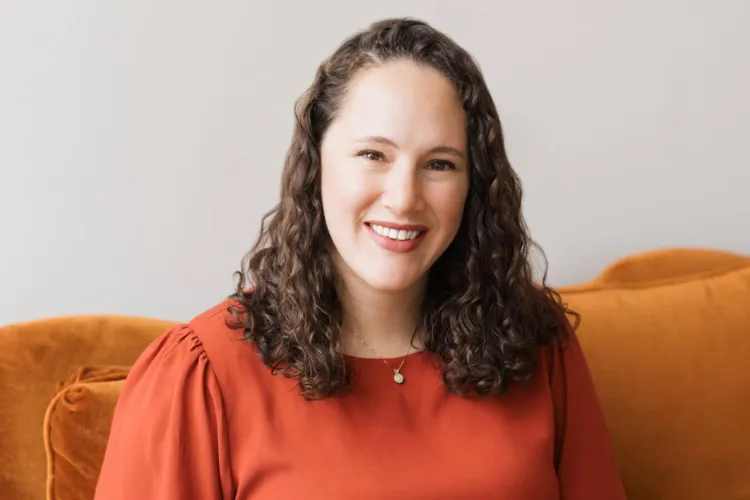
Hayley Perelman ’10, Ph.D.
Major: Bio-Behavioral Psychology
Lives in: Berkeley Heights, NJ
Current position: Licensed Psychologist and Sport Psychologist in private practice
What work looks like: “I see patients virtually (I am licensed in several states, including VT) from my home office. I specialize in sport psychology, transitions into/out of sport and athlete identity, eating disorders/disordered eating, body image, anxiety, perfectionism, and other life transitions.”
What she loves about it: “As a parent to a 2-year-old, right now I love how flexible my job is, since I set my own hours. I get to be a really present mom and also do a rewarding job. In terms of my clients, I’ve been working with some for several years, and it’s a privilege to walk in their world and watch them grow and build a life worth living.”
What she gained from a liberal arts education: “Having a liberal arts education helped me build my critical thinking abilities. I still occasionally reflect on the English and philosophy courses I had to take—those were so hard for me because they engaged my brain in such a different way. I also took some awesome neuroscience classes that helped to not only build those critical thinking skills but to also begin to understand how the biology of the brain, body, and emotions are connected. Now, when I’m explaining to a patient how anxiety, fear, and stress function, for example, I’m still able to give detailed information about what this looks like biologically in the brain.”
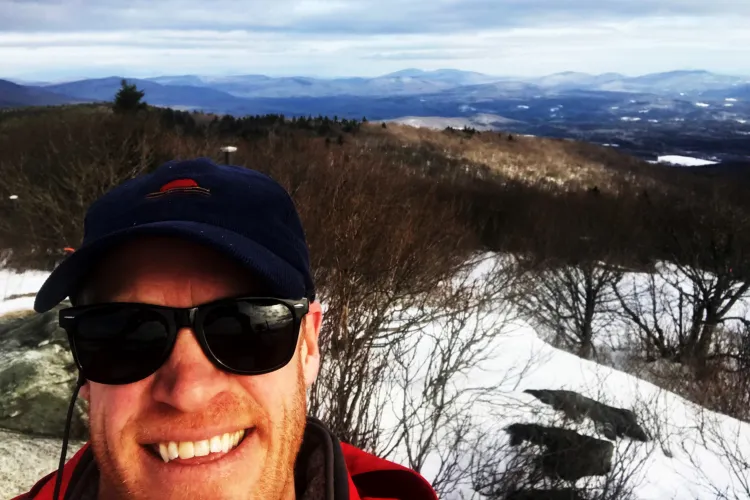
Richard S. Perkin '03
Lives in: Southport, CT
Major: History
Current position: Co-Founder of Gells Apparel
What work looks like: “We are a premium accessories and apparel brand with licensing partnerships with the National Hockey League and several NCAA institutions (including UVM), plus three partner charities whom we support in several ways. As an owner of a small business, my responsibilities are “soup to nuts.” There are days where I will have a meeting with an executive at a Fortune 500 company and others where I handle tasks like inventory management and accounting.”
What he loves about it: “There is nothing more rewarding to me than putting down a vision on paper— for a new product line, new channel of distribution, or process improvement—and watching it come to fruition. It’s hard work but it’s also extremely rewarding.”
What he gained from a liberal arts education: “I wear many hats as a business owner, and I think a liberal arts education is one that forces you to wear many hats as a student. I took different courses at UVM in different fields such as economics, architecture, philosophy, and (of course) history. This required me to be open to learning different materials in different settings on a daily basis, and I had to pivot my mindset from class to class. Today, I am constantly having to pivot in a similar way. One moment I am addressing a supply chain issue and the next I am working on a marketing presentation. Having a well-rounded education helped me become a more well-rounded person inside and outside the classroom.”
S
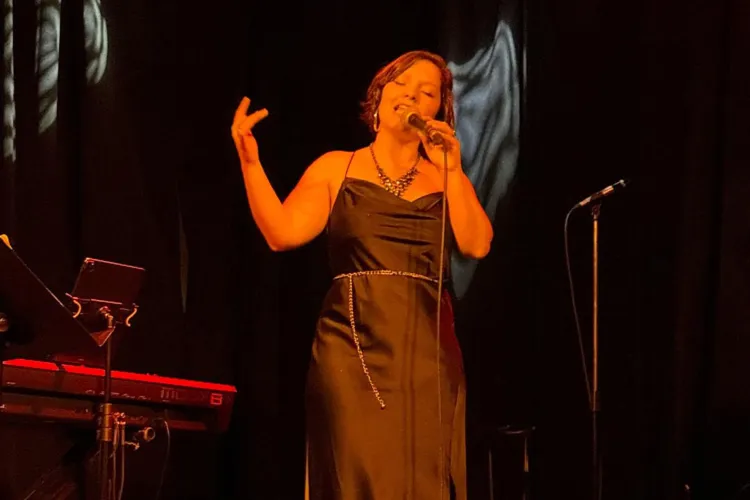
Isabella Sances ’17
Majors: Music (concentration in Jazz Studies) and Italian Studies
Lives in: Colchester, VT
Current position: Board-certified Music Therapist and Mental Health Counselor at Bella’s Beats Music Therapy & Counseling LLC
What work looks like: “I work in the Winooski School District with school-aged clients, and at an office with clients of mixed ages. I provide a space to help clients cope with challenging experiences in their lives, achieve balance, and realize their true potential and the light inside them.”
What she loves about it: “I love creating a warm, encouraging, validating, and inviting space, collaborating, guiding, and building a strong therapeutic relationship. I love working in private practice due to the flexibility—and I really enjoy being my own boss.”
What she gained from a liberal arts education: “My liberal arts degree gave me a well-rounded education and college experience, with adaptability and unique knowledge to draw from. Instead of being stuck to one topic, I was able to draw from multiple modalities. I also gained the ability to improvise, compose, be flexible, collaborate, and use my voice and self as an instrument. These skills have been vital to music therapy and developing my clinical musicianship and voice.”
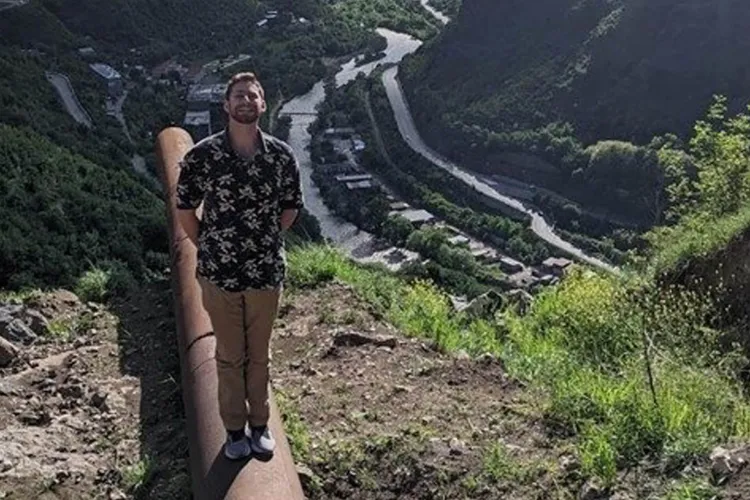
Ben Shefner ’18
Majors: Political Science, History, and Russian
Lives in: Washington, D.C.
Current position: Program Officer at the National Endowment for Democracy
What work looks like: “I support the work of activists, journalists, and human rights defenders in Eurasia.”
What he loves about it: “I get to travel all over the region I studied so closely in college and meet with inspiring people doing incredible work!”
What he gained from a liberal arts education: “Studying the liberal arts at UVM gave me a lot of skills, but the most important was how to write both academically and professionally. In addition, in my career I often have to learn—virtually overnight!—everything about a topic I’ve never heard of, and that’s a skill a liberal arts education really cultivates. Best of all, it meant I had the freedom to explore what interested me and chart my own course.”
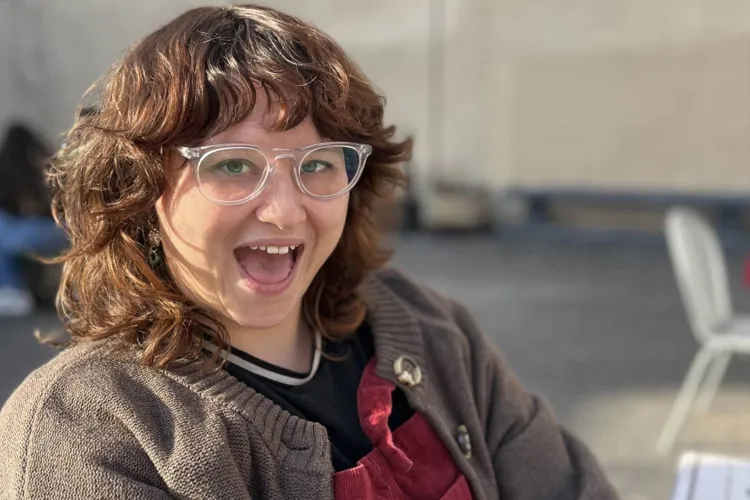
Tori Staley ’17, J.D.
Majors: Political Science and Studio Art
Lives in: Philadelphia, PA
Current position: Legal Fellow at the CPCS Innocence Program
What work looks like: “I am part of the legal team for two separate murder cases that is pursuing post-conviction, factual, innocence-based relief. I am also helping lead a project focused on identifying the obstacles to accepting more women into innocence programs. Additionally, I screen cases for acceptance into our program, meet with clients, write memos and briefs, and help build and maintain our data sets and outreach material.”
What she loves about it: “I love my team and my clients!”
What she gained from a liberal arts education: “Having a well-rounded liberal arts education has been extremely important. It taught me how to use my network of people and my community to help solve the problems around me. The networking skill, in particular, has helped me get where I am professionally. Because of it, I’m adept at identifying key research and the people from various disciplines who will work best together as a team to support a specific client or project. I also learned the importance of having a work-life balance. UVM helped me realize that work and status aren’t everything—enjoying life and nature and people is equally as important.”
T
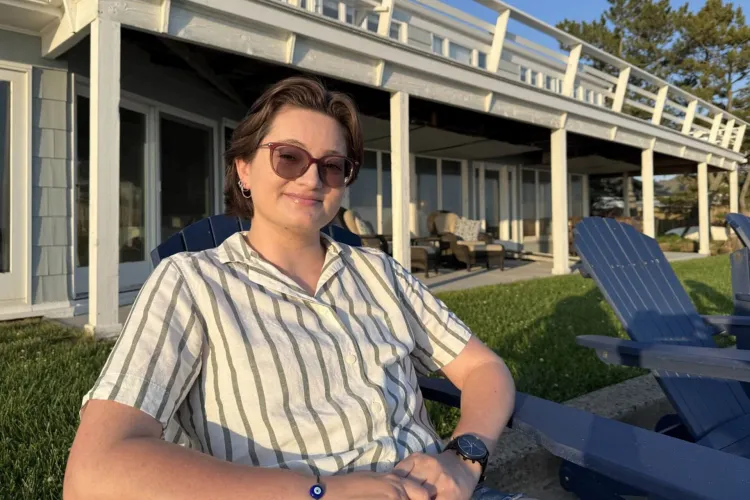
Madeline Hyde Tagatac ’21
Majors: Political Science and Philosophy
Lives in: Washington, D.C.
Current position: Program Associate at ZemiTek, LLC on the USAID Bureau for Humanitarian Assistance (BHA) Support Contract in the Bureau’s Office of the Middle East, North Africa, and Europe (MENAE)
What work looks like: “I work on administrative and programmatic tasks that ensure the smooth functioning of USAID humanitarian programs and operations in the MENAE region. I work with office leadership to ensure office- and bureau-level disaster response readiness, coordinate continuing disaster response support to ongoing natural and manmade disasters, and directly support USAID/BHA Disaster Assistance Response Teams.”
What she loves about it: “I love that my work is mission-driven and helps people survive and recover from the world’s most urgent humanitarian crises. I also love learning new things about humanitarian assistance every day and having opportunities to expand my skill set and serve on different response teams in a variety of capacities.”
What she gained from a liberal arts education: “Do not underestimate the power and importance of critical thinking, analytical reading and comprehension, and clean, solid writing! The papers I wrote and the seminars I participated in at UVM honed my abilities to express my thoughts clearly and concisely—an essential skill for any career but particularly in a fast-paced disaster response environment. Being able to quickly comprehend and digest information and then craft informed, logical responses tailored to a specific audience is a crucial skill instilled in me by my liberal arts education at UVM.”

Claire Tattersfield '19
Lives in: Brooklyn, NY
Majors/minor: Global Studies and Political Science double-major, Spanish minor
Current position: Associate Editor for Viking Children’s Books and Flamingo Books (part of Penguin Young Readers, a division of Penguin Random House)
What work looks like: “I mostly work on picture books and legacy brands. Not only do I work with authors and illustrators, but I also get to think creatively about new publishing for older books like Corduroy, Madeline, and Pippi Longstocking. I dream up potential new books in the series or work with a designer to give them more modern covers.”
What she loves about it: “I really love that I get to think creatively all day long. From working with authors to brainstorm new ideas for their next book to helping an author ‘drama-up’ the climax of their middle-grade book, it’s so much fun helping others fulfill their creative vision. I also like that this job is extremely collaborative—I work with other editors all day long, bouncing ideas off each other and helping with their projects.”
What she gained from a liberal arts education: “My two majors taught me how to research as well as synthesize information and put it in context that’s constructive and useful. Where previously my education had been very linear, my liberal arts education helped me look at a lot of very different-seeming pieces of information and see how they relate to each other, and that’s an invaluable skill. It helps me study book sales data, for example, and figure out what that means in the marketplace. And, thanks to my Spanish minor, I’ve been able to take the lead on coordinating the Spanish-language translations for the imprints I work for. On my resume, having a well-rounded education that was applicable in many ways really made me stand out.”
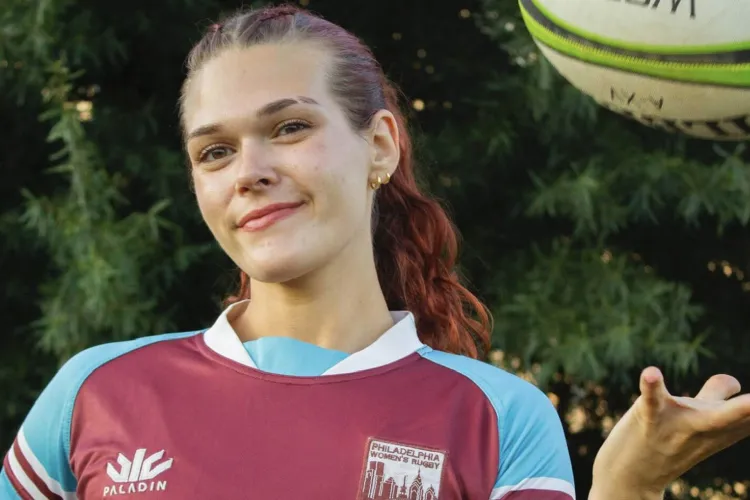
Gillian Tiley ’19
Majors/minor: Geography and Political Science double-major, French minor
Lives in: Philadelphia, PA
Current position: Associate Urban Planner
What work looks like: “I aim to co-create models for cities where public spaces are inclusive, engagement is vibrant and expressive, and the people most impacted by planning decisions are positioned as authors of their environments.”
What she loves about it: “As a queer urban planner, I’m committed to challenging the status quo of who gets to shape our urban environments. I admire how the planning network in Philadelphia is closeknit and collaborative, functioning as a collective brain trust to push for policies and practices that deconstruct those barriers. The Philadelphia planning world has been more than just a professional network—it has been a platform to build solidarity with others who are dreaming of, and working toward, cities that truly belong to everyone.”
What she gained from a liberal arts education: “I gained a multifaceted analytical skillset including qualitative research methods, data tools, and strong writing and public speaking skills. These skills have made me a great storyteller, which has been instrumental in my professional life. The world of urban planning is innately multifaceted: You have to be well-versed in policy, law, history, design, and economics to be truly equipped to uncover and implement solutions suitable to each community’s unique needs. I couldn’t be a successful urban planner without the holistic skillset and worldview I gained from my liberal arts education at UVM.”
W
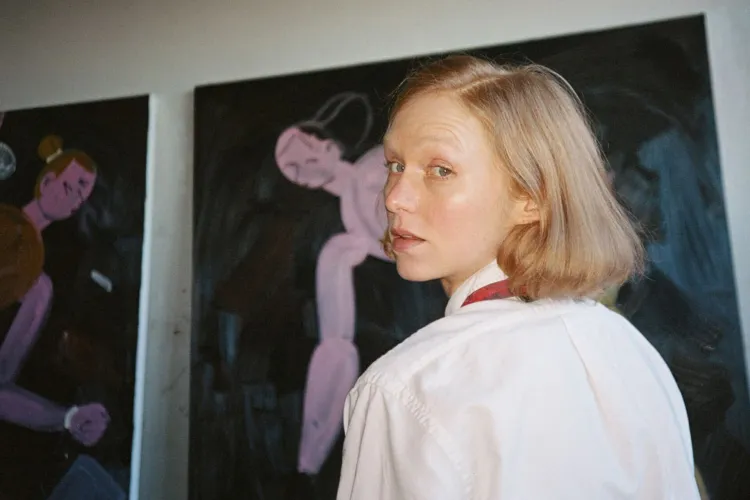
Grace Weaver ’11
Major/minors: Studio Art major, Biology and Art History double-minor
Lives in: Berlin, Germany and Brooklyn, NY
Current position: Artist
What work looks like: “I exhibit my artwork in galleries and museums in the U.S., Europe, and Asia. I spend most of my time painting and drawing but also spend time on administrative work, shipping and receiving, writing, editing, accounting, etc. ”
What she loves about it: “I love that there is no template for what it means to be a contemporary artist. As an artist you are constantly re-defining your own projects to best accommodate your obsessions, your influences, and the big questions you are trying to probe in the world.”
What she gained from a liberal arts education: “Studying multiple disciplines in tandem gave me a blueprint for how I think and work today. By taking a wide variety of classes outside of my major I learned to approach my artistic projects as research endeavors, applying rigor and thoroughness to every inquiry, no matter how idiosyncratic or personal. Because of the wide-ranging aspect of my liberal arts education, I saw the importance of being legible not just to my own field of contemporary art but across disciplines. I learned this especially from my time in the Honors College, in which my fellow students came from all over the university to join in seminars on literature or philosophy. I also learned to value clarity in writing and self-presentation. This has all strengthened my belief in the importance of intellectual generosity.”
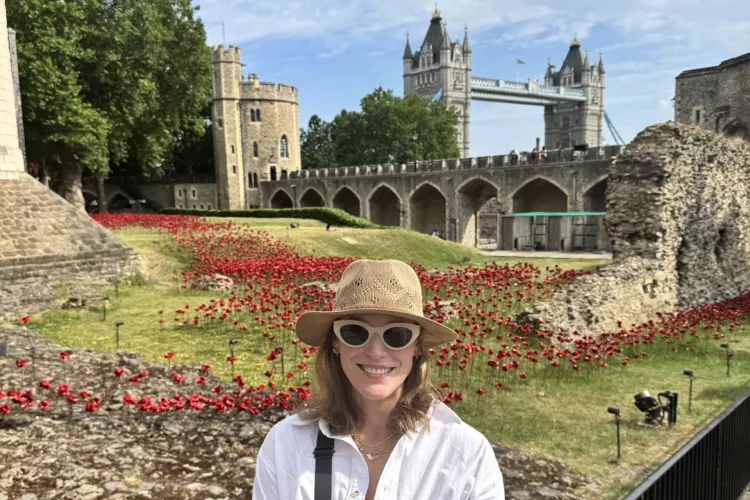
Sally Wiebe ’10
Majors: English and History
Lives in: Washington, D.C.
Current position: Senior Manager for Customer Success at ZAGENO Inc.
What work looks like: “I manage the experience of pharmaceutical companies using our ecommerce platform for lab supplies. I ensure clients know how to use our tech effectively, often meeting with directors to evaluate cost savings opportunities and with researchers who use the product and provide our company with feedback.”
What she loves about it: “I love that there is something new to tackle almost every day. There are only a few tasks I rinse and repeat during the month; most of my time is spent taking a step back from the details to identify patterns across customer experiences that can turn into opportunities to increase market share.”
What she gained from a liberal arts education: “I would not know how to write well or think critically without my liberal arts education, period! I lean on these strengths every day while working at a technology firm that incorporates AI. Before we implement AI into a specific workflow, we review the pros and cons, like: What is the operational cost savings? What feeling will this elicit from our intended customer base? What happens if it breaks? You cannot run these questions through AI. Studying the liberal arts also taught me how to stay organized and helped me become knowledgeable across a variety of subject areas—both skills that have shown company leadership how reliable my work and counsel are.”
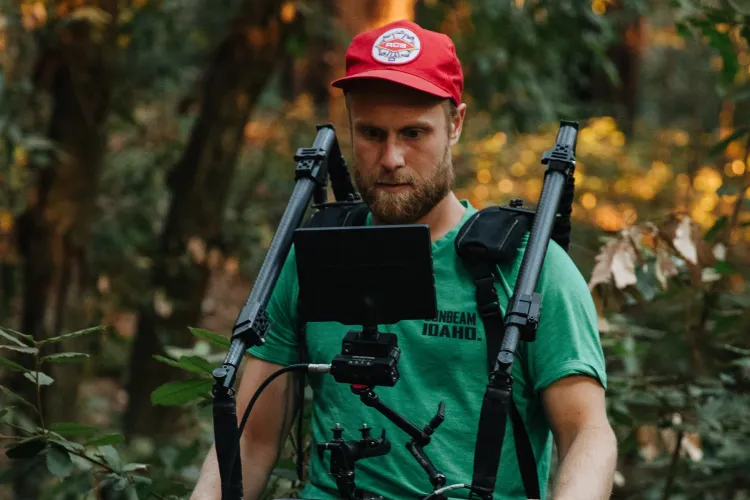
Tyler Wilkinson-Ray '13
Lives in: Aspen, CO
Major: Global Studies
Current position: Founder and Director of The Wilder Studio
What work looks like: “I am a documentary and commercial filmmaker and photographer. Most of my work is making short films for companies in the outdoor industry like The North Face, Yeti, and Patagonia.”
What he loves about it: “I get paid to travel all over the world, meeting people I would normally never meet. The most important part of my work is storytelling, and it’s fascinating to get to know so many different people, their communities, and their cultures.”
What he gained from a liberal arts education: “Overall, it taught me how to think and how bring a new and creative approach to challenges. I really believe your undergrad should be about making your brain a fun place to hang out and teaching you how to think critically versus developing specific skills. Of course, being a good writer is critical, but I think being well-rounded and having a diverse skillset is ultimately much more important when handling the wide range of challenges you will face in life and the workforce. This is especially true with types of technology, such as AI, that are coming out today and will continue to come out in the coming decades. More than ever, being able to think creatively will be more important than having a highly specialized skillset. Don’t listen to your parents if they tell you that you have to study accounting or engineering—the economy of your generation will be entirely different than the economy they worked in.”
Interested in learning more about becoming involved as a UVM alum? Visit the UVM Foundation Alumni Association page.
